HOW TEACHERS CAN USE THEIR ALLOCATED BUDGET TO PROMOTE A LOVE FOR READING


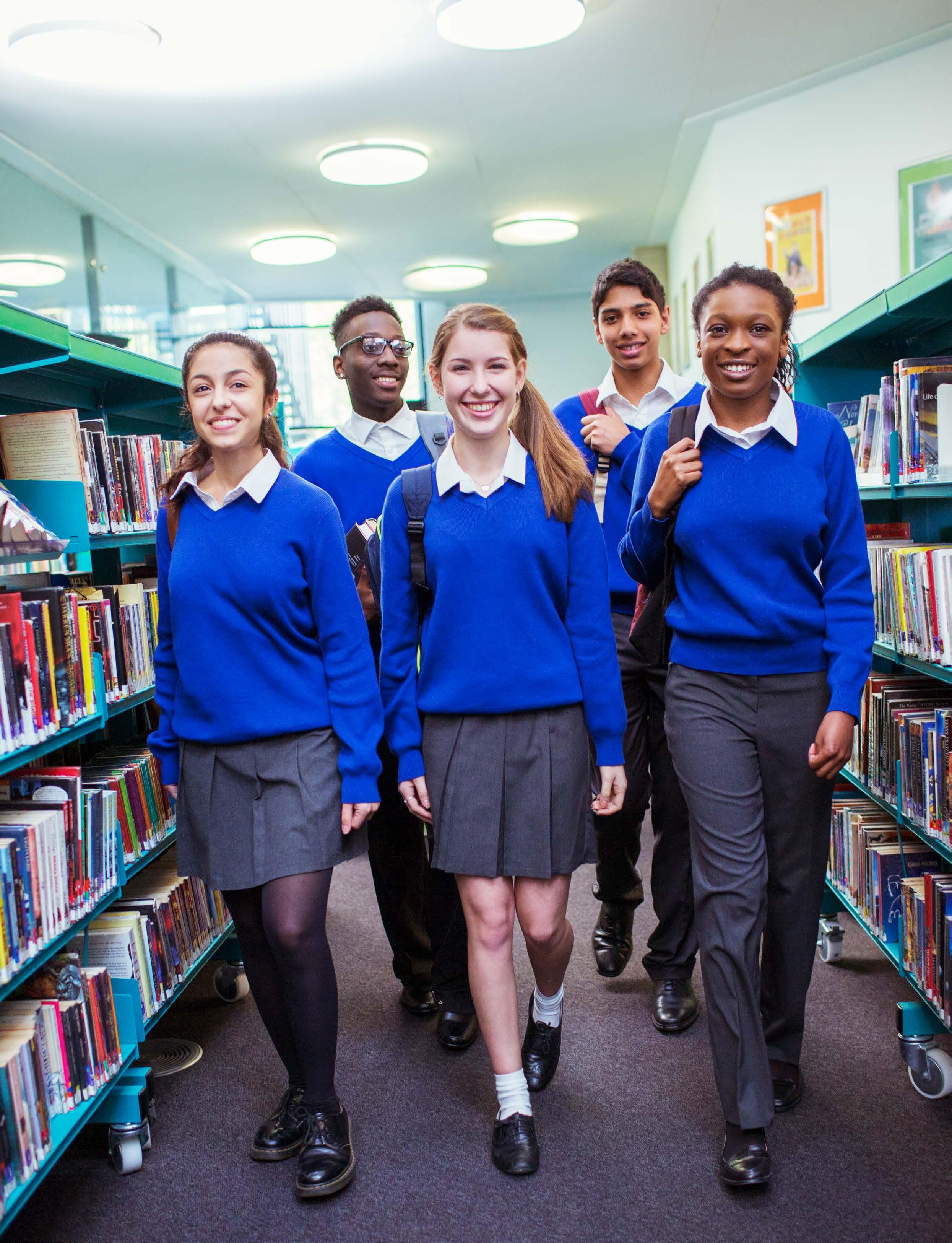
PRIMARY CHILDREN’S ATTENTION SPAN IS SHORTER THAN EVER, WARN TEACHERS
ENGINEERING SHOULD BE MADE MORE VISIBLE IN SCHOOLS, SAYS POLL OF ACADEMICS

ISSUE 130

4 Schools encouraged to participate in NHS survey on smoking, drinking and drug use

12 Prevention, recovery and resilience: What’s the plan for cyber security in schools?


14 Energy saving advice from Quest
16 Learning strategies schools can draw upon to support EAL pupils
20 Real teachers explain how to spot AI generated answers
22 How teachers can use their allocated budget to promote a Love for reading

24 How the relational cultures of girls and boys in school affect everything

3 www.qaeducation.co.uk |
5 Warning that death from school building collapse ‘very likely’
Week
6 Let’s ‘Make a Noise’ about bullying this Anti-Bullying
IB programmes
‘trio of
teaching awards
7 Engineering should be made more visible in schools, says poll of academics 8 Cambridge state school is first in UK to offer three
9 Mental health programme for schools celebrates
triumphs’ at national
10 Primary children’s attention span is shorter than ever, warn teachers
15 Helping schools tackle the challenges around social media
PUBLISHED EVERY TWO MONTHS BY EUROMEDIA ASSOCIATES LTD 10 Ashfield Road, Chorley, PR7 1LJ Tel: 01257 267677 Fax: 01257 267711 MANAGING DIRECTOR Emma Hatherall EDITOR Nick Lavigueur SALES Gemma Winstanley PRODUCTION MANAGER Sheila Helm GRAPHIC DESIGN Elle Creamer PRINTED BY Buxton Press Ltd. QA EDUCATION ISSUE 130 QA Education magazine would like to thank the advertisers that appear in this publication for their support and wish them continued success. QA Education is an independent publication and has no affiliation with any other organisation. The views expressed in QA Education do not necessarily reflect those of the publisher, Euromedia Associates Ltd and its employees. Similarly the efficacy of any products and services featured are the sole responsibility of the supplier / manufacturer.
REGULARS 4 EDITOR’S LETTER 26 REQUESTED PRODUCT SHOWCASE 38 EDUCATION 40 DUKE OF EDINBURGH AWARDS 44 FOSTERING & ADOPTION 45 FINGER PROTECTION 46 AIR & WATER HYGIENE 47 QA EDUCATION BOOKSHELF Front cover image: iStock Back cover image: Adobe Stock Photos
FEATURES
to the latest edition of QA Education
Schools encouraged to participate in NHS survey on smoking, drinking and drug use
Anonymous study also looking to update research on vaping
Nick Lavigueur - Editor

It’s been a challenging year. Aren’t they all?
But teachers, and pupils, are a resilient bunch and I’m sure as September approaches some part of you is still looking forward to inspiring and educating a new cohort of learners. Hopefully we can help with our eclectic range of articles to keep you at the cutting edge of the post-pandemic education revolution. This edition features everything from tackling maths negativity or helping immigrant pupils adapt to new ways to inspire a love of reading.
As more and more school work becomes digital, school leaders and teachers need to keep up with the real world as technology continues to evolve. One of the more controversial aspects of that in recent months has been artificial intelligence (AI). For all the benefits of AI, such as your Amazon Alexa speaker at home, the risk of pupils using AI systems to cheat or plagiarise is becoming more of an issue. But would you even know?
Inside you will find a feature about how to tell if tools such as ChatGPT or Google Bard have been used to do school projects and what you can do about it.
It’s something the government is taking seriously with Education Secretary Gillian Keegan launching a call for evidence and views on the risks, ethical considerations, and training needed for education workers.
It’s not all negative though as AI could be used to reduce workload, improve outcomes, and run operations more efficiently as well as work around misuse such as essay bots and cheating in exams.
And in an effort to upskill the workforce, new Digital Functional Skills Qualifications (DFSQs) will begin in September as well as the launch of a new Digital and Computing Skills Education Taskforce.
Secondary schools across England are being invited to take part in the latest edition of a statistical survey measuring the use of alcohol, nicotine and drugs by young people.
The Smoking, Drinking and Drug Use in Young People in England survey provides an invaluable snapshot of prevalence, trends and attitudes amongst students aged 11 to 16. Schools from across the country are being asked to facilitate the short anonymous survey with pupils between September and December 2023.

The results will provide vital information to better understand behaviour and to develop policies, plan new initiatives and monitor their impact.
Since its inaugural publication in 1982, the survey is now published every two years and has been an important source of information for government departments, local authorities, charities and academic institutions.
It plays an essential role in informing health and education policy, for instance in 2015, the survey data was used to help make the case for the legislation which banned adults smoking in cars when children are present.
The 2023 report will include information on the percentage of students who have ever smoked, drunk alcohol or taken drugs and is analysed by demographics including age, gender, ethnicity and geography.
The survey will also deliver updated insights into the increasing use of e-cigarettes, or ‘vaping’, amongst young people. This follows findings from the 2021 survey which saw a 3% increase in e-cigarette use, from 6% in 2018 up to 9% in 2021. State, independent and private
secondary schools are all invited to register their interest in participating. Schools will receive a lesson plan designed to fit in with the PSHE (personal, social, health and economic) curriculum and the survey can be run as part of a PSHE lesson. Participating schools will also receive a bespoke report showing how their school’s survey results compare to the national results. The new online format will also allow the survey to be undertaken on a voluntary basis by schools annually.
The new digital version of the Smoking, Drinking and Drugs Survey has been piloted with a small group of volunteer schools.
Aimee Stevens, Head of CLASS –Culture, Life and Societies Studies (PSHE) at Penrice Academy in Cornwall, said: “Being involved in this year’s pilot scheme for the survey has been incredibly valuable to us. It has helped us understand how these issues affect our students and how we can incorporate the data into our pastoral offer as well as PSHE lessons.
“It is important that students have the opportunity to reflect on their own experiences and that we gather perspectives from across the country. The topics are very relevant points of interest to our pupils and the survey is a fantastic opportunity for us to engage in informed discussions on the issues of smoking, drinking and drug use.”
Schools can register their interest to participate or find out more information about the survey by emailing SDDsurvey@ipsos.com.
4 |www.qaeducation.co.uk WELCOME
| EDITOR’S LETTER |
image
of iStock
courtesy
Warning that death from school building collapse ‘very likely’
Around 700,000 children in England are studying in schools requiring major rebuilding or refurbishment which can negatively impact pupil attainment and teacher retention, a new National Audit Office report on the condition of school buildings says.
In a separate report – DfE: Environmental sustainability overview – the NAO found DfE had insufficient plans for decarbonising the school estate.
The NAO report reveals the DfE has spent between £2 and £3 billion per year for the past eight years, less than half its own estimates of what is needed for ‘best practice’ capital funding to maintain and repair schools.
And it reveals that the possibility of a building collapse or failure causing death or injury has been a ‘critical and very likely’ risk since summer 2021. Decaying reinforced autoclaved aerated concrete (RAAC) at 600 schools built between the 1950s and early 1990s is the key concern. The lightweight concrete product was mostly used in flat roofs. An investigation was launched after a school roof in Kent collapsed in 2018 - thankfully on a Saturday when the building was empty. So far less than a third of those at risk have been inspected with 65 found to have issues. The DfE has vowed to provide funding to ensure the immediate risk is mitigated.
Issues with asbestos in schools also remain unresolved.
The NAO said the deteriorating condition of the school estate presented “challenges for DfE’s sustainability ambitions”.
Gareth Davies, head of the NAO, commented: “At present, 700,000 pupils are learning in schools requiring major rebuilding or refurbishment.
“DfE has, since 2021, assessed the risk of school building failure or collapse as critical and very likely, but it has not been able to reduce this risk.
“More widely, it has an ambitious strategy for decarbonising the education estate but no plan for how it will achieve this or how much it is likely to cost.
“DfE is gathering some of the data it needs to effectively target its resources. It must now use this to improve its understanding
of where schools are most at risk so it can balance addressing the most urgent risks while investing enough in maintenance, reducing carbon emissions, and climate change adaptation measures to achieve its objectives and secure longer-term value for money.”
Paul Whiteman, general secretary of the National Association of Head Teachers, said safety in schools should be “a given”. He added: “These shocking figures lay bare how far short the government is falling in its efforts to ensure school buildings are safe and fit for purpose for children and staff.”
Alex Green, Head of Let’s Go Zero, a campaign which supports schools to reach zero carbon by 2030, said: “It is deeply concerning that the National Audit Office reports today the overall conditions of school estates are declining following years of under-investment. To help address safety concerns and also ensure schools are fit for the future, the government must urgently adapt and
retrofit the UK school estate.
“A state-wide retrofit programme would help cut high energy bills, help the UK meet its climate targets, and spark green jobs in every corner of the country.”
“Progress has been made with a commitment in November 2021 by the Department for Education to commit to improving their building specifications, so that all new school buildings from 2022 onwards are net zero carbon in operation, but the majority of school buildings are old – and they are still left cold and unsafe.”

A DfE spokesperson said it had allocated £15bn towards “keeping schools safe and operational” since 2015.
They added: “Nothing is more important than the safety of pupils and teachers which is why we have been significantly investing in transforming schools up and down the country.”

5 www.qaeducation.co.uk | | FEATURES | W: www.kbsdepot.com | T: 01366 310 500 Supplying an extensive range of outdoor furniture solutions to schools, universities and colleges throughout the UK
image courtesy of iStock
Let’s ‘Make a Noise’ about bullying this Anti-Bullying Week

Bullying
to be this way.
This is one of the reasons that ‘Make A Noise About Bullying’ has been chosen as the theme of AntiBullying Week 2023 taking place from 13th to 17th of November.
The theme came about following consultation with teachers and pupils by the Anti-Bullying Alliance which coordinates Anti-Bullying Week every year in England, Wales and (for the first time) Northern Ireland.
Following the success of the campaign in 2022 – when 80% of schools marked the week, reaching over 7.5 million children and young people – Anti-Bullying Week will remind everyone whether it’s in school, at home, in the community or online, we can bring an end to bullying.
As usual, schools will be able to download free teaching resources and themed assemblies. These will focus on the activities we can take to encourage young
people to consider what bullying means to us, how banter can turn into something more hurtful, and what we can do to stop bullying.
Anti-Bullying Alliance patron, CBBC and CBeebies star Andy Day is leading celebrity support for the campaign, with his band Andy and the Odd Socks. The band will record and release a toe-tapping song to mark Odd Socks Day on the first day of Anti-Bullying Week. There’s a serious message behind the fun: let’s pull on odd socks to show we’re ALL unique and different, and let’s be kind to each other and respect each other’s individuality.
For older children, the buzz on social media is an important part of Anti-Bullying Week, and a great opportunity for schools to share how they’ve embraced the anti-bullying message. It’s easy to get involved via #AntiBullyingWeek and
#MakeANoise on Instagram, TikTok, Facebook and Twitter.
Martha Evans, Director of the Anti-Bullying Alliance said:
“This Anti-Bullying Week we urge adults and children alike to come together to have discussions about what we mean by bullying behaviour, how we can tell the difference between ‘banter’ and bullying and how we can make changes to reduce bullying. Together, we can make a difference if we make a noise to stop bullying.”
• For more details about Anti-Bullying Week visit the Anti-Bullying Alliance’s website.
• You can keep informed and support Anti-Bullying Week by becoming a member of the Anti-Bullying Alliance.
• Follow us on Twitter via @ABAonline.

6 |www.qaeducation.co.uk | FEATURES | W: www.kbsdepot.com | T: 01366 310 500 Supplying an extensive range of outdoor furniture solutions to schools, universities and colleges throughout the UK
affects millions of young lives. Too often, we are silent when we see bullying take place, silent about the hurt bullying causes, and silent when we hear bullying dismissed as ‘just banter’. It doesn’t have
Engineering should be made more visible in schools, says poll of academics
Plus, universities are adapting courses to spotlight sustainability
The UK’s engineering academics have called for greater visibility for the subject in schools as a way of tackling labour shortfalls and the need to find environmental solutions, following a poll by NMITE (New Model Institute for Technology & Engineering) and the Engineering Professors’ Council (EPC). NMITE and the EPC worked together to conduct the survey of the nation’s engineering academics in advance of the EPC’s ‘Engineering Academics Network Annual Congress’ last June. The three-day event saw engineering academics from universities all over the UK come together to explore issues in education and engineering.
When asked what should be done to elevate the status of engineering, almost two thirds (63%) of respondents felt that engineering should be made more visible in schools, with one commenting: “help to educate parents about what a fantastic career choice a Professional Engineer is.” This emphasises the importance of raising awareness of engineering as a career
choice, as many school leavers are either unaware it’s an option, think they must have maths or science qualifications to be considered, or hold the view that it’s a career path just for certain types of people.
James Newby, CEO at NMITE, gave his thoughts on the results. He said: “It’s clear that more needs to be done to help inform young people about engineering as an option, earlier in their learning journey.

“This is not a finger pointing exercise targeted at schools. They have enough on their plates but it’s important that the national curriculum reflects the diversity of careers available to school leavers within STEM.

“T level courses in Engineering did begin last year, which is a promising sign that things are moving in the right direction and we are also seeing impressive initiatives from industry trying to assist with the education piece, alongside institutions like ours going into schools and engaging directly with students.
“It’s about putting engineering on their radar and changing some of those
perceptions that engineering is only for boys, or for those who excel at maths for example.
“Our new model of education is open to new and different kinds of thinkers and the old stereotypes don’t apply.”
Johnny Rich, Chief Executive of the EPC, commented: “The UK has a skills shortage in engineering running into tens of thousands every year. Without plugging that gap, we cannot hope to address the environmental, technological, economic and social challenges we face and that many young people care passionately about. But you cannot be what you cannot see. We need to be clearer in schools about what engineering is – a creative subject that applies science and design to real-world problems and which leads to fulfilling and rewarding careers for all kinds of students.”
For more information about the Engineering Professors’ Council visit https://epc.ac.uk and for more information about NMITE visit: https://nmite.ac.uk.
| FEATURES | W: www.kbsdepot.com | T: 01366 310 500 Supplying an extensive range of outdoor furniture solutions to schools, universities and colleges throughout the UK
image courtesy of iStock
Cambridge state school is first in UK to offer
three IB programmes

Cambridgeshire based Impington Village College has received official authorisation from the International Baccalaureate (IB) to deliver its Middle Years Programme (MYP), meaning that the College is the first UK state secondary school (11 – 18 years) to deliver three IB programmes: the MYP, Diploma Programme (DP) and Career-related Programme (CP).
students have high levels of digital proficiency. Also commended was the College’s teaching of approaches to learning skills, its Continuous Professional Development (CPD) programme for its staff and its international links to educational institutions around the world, including schools in Ethiopia, India, Germany and more.
The authorisation allows students to study the prestigious IB for free from Year 7 to Year 13, with a two-year gap to complete mandatory GCSE studies.

Johanna Sale, Vice Principal at Impington Village College, said: “We are absolutely delighted to have achieved authorisation to deliver the MYP. The IB is fundamental to everything we do at the College. We wholeheartedly believe that IB programmes deliver the best for students and prepare them for life beyond the classroom. It brings me so much joy to be able to offer our students the opportunity to study the MYP, DP and CP at our state
school, free of charge.”
To achieve MYP authorisation, the College had to undergo a rigorous candidacy and assessment process which lasted for two years and involved demonstrating to IB evaluators that practices and programme requirements are being met. As well as achieving beyond the required points threshold to attain authorisation, the College received commendations for its practices in six specific areas. The IB evaluators praised the College’s whole school IB ethos and its inclusive practice, as well as the roll out of its 1:1 Chromebook devices, which ensures
Victoria Hearn, Principal at Impington Village College, said: “It is well documented that IB programmes academically prepare students to thrive at all levels of their education, which is why we have been offering the programmes at the College’s Sixth Form for over 30 years – it only made sense to offer an IB programme in the main College too for student continuity. As well as providing an excellent foundation for completing GCSEs, the MYP allows our students to develop key life skills that aren’t formally assessed. Skills such as communication, open-mindedness and critical thinking –recognised by many to be the most in-demand skills for the jobs of the future – all form a part of our students IB Learner Profiles.”
“Our MYP authorisation is the culmination of many years of hard work and I’d like to thank all of my colleagues involved for their commitment and dedication to getting us to this point – thank you for enabling us to make Cambridge the home of the free IB!”
Discover more about the MYP: https:// www.impington.cambs.sch.uk/myp/
8 |www.qaeducation.co.uk |
| W: www.kbsdepot.com | T: 01366 310 500 Supplying an extensive range of outdoor furniture solutions to schools, universities and colleges throughout the UK
FEATURES
Mental health programme for schools celebrates ‘trio of triumphs’ at national teaching awards
The LightBulb Mental Health Wellness Programme, which is delivered by staff from the St Andrew’s Healthcare’s Children and Adolescent Mental Health Services (CAMHS) College, scooped the Silver Award in the Impact Through Partnership category at the annual Pearson National Teaching Awards.
The team were named the winners of the prestigious award for their “outstanding commitment to changing the lives of the children they work with every day”.
In addition, CAMHS Headteacher and LightBulb Founder Cheryl Smith was named a runner-up in the Headteacher of the Year in a Secondary School category and the LightBulb team were Highly Commended for the Excellence for Special Needs Education prize.
LightBulb, which was created to help young people understand and identify mental ill-health and the different feelings and thoughts they may experience as they grow up, has now been shortlisted to win one of just 16 Gold Awards.
The winners will be announced and celebrated at a gala ceremony in London on 25 November and televised on the BBC, with winners showcased on The One Show.
The Pearson National Teaching Awards celebrates excellence in education and is run by the Teaching Awards Trust, who
aim to recognise the life-changing work that takes place in education. It aims to highlight the vital role educators play and the work that’s delivered in schools and colleges every day.
Michael Morpurgo, author, former Children’s Laureate, and President of the Teaching Awards Trust, said: “I am inspired by the devotion of teachers and the huge impact they have on the lives of the young people they tutor, support, encourage and motivate day in and day out.
“The valuable role they play both inside and outside the classroom has inspired generations of young people across the country to achieve their potential. I am delighted to congratulate the winners of the 2023 Awards and thank them all for the amazing contributions they have made to our communities.”
The initiative also provides participating schools with the skills and support so they can demonstrate and showcase excellence regarding mental health practice.
Sharon Hague, Senior Vice President of Schools at Pearson UK, added: “We would like to congratulate today’s Silver winners on their incredible achievements. We can’t underestimate the huge contribution schools make to our young people’s lives, and the LightBulb programme is an inspiring example of the positive impact an individual can have on pupils and
communities.”
St Andrew’s Healthcare CEO Dr Vivienne McVey said: “We’re thrilled that our CAMHS College and LightBulb programme has been recognised and been named Silver Award winners. We’re extremely proud of the team who truly deserve their trio of triumphs that we’ve picked up.

“The LightBulb team is so passionate about prevention and ensuring our young people understand that our mental health is just as important as our physical health. As a Charity, we really believe in what we’re delivering and clearly lots of schools agree with us as we’ve now delivered the programme to thousands of children across Northampton and beyond.”
“I would like to congratulate Cheryl and her team for these wonderful accolades and for all the hard work they do in ensuring schools and parents have the skills and resources to take good care of our children’s young minds.”
LightBulb is an initiative that is available all year round and provides the participating school with mental health awareness and support training for all school staff as well as sessions for both parents and students. Each session talks about symptoms, support and signposts resources. The LightBulb programme is suitable for both primary and secondary schools up and down the country. St Andrew’s Healthcare is a charity and therefore the programme is not a profit-making initiative, which means the pricing structure has been created to ensure it is affordable to all schools:
Primary school with up to 200 students
£200
Primary schools with over 200 students
£400
Secondary Schools

£800
For more information or to sign up to the LightBulb Roadshow email Lightbulb@ stah.org
9 www.qaeducation.co.uk | | FEATURES | W: www.kbsdepot.com | T: 01366 310 500 Supplying an extensive range of outdoor furniture solutions to schools, universities and colleges throughout the UK
A mental health programme that has impacted nearly 30,000 children in 50 schools has beaten off thousands of applicants and won a national teaching award and been recognised in two other categories.
Primary children’s attention span is shorter than ever, warn teachers

8 in 10 primary teachers say pupil
inattention
is worse since the end of the pandemic
Primary school teachers say that they have faced unprecedented behavioural problems among young children during this school year, according to a new study (June 2023).
When asked about life in the classroom post-Covid, 70% of the teachers surveyed say that children’s classroom behaviour has continued to worsen.
84% of primary school teachers think the attention span of the children they are teaching is shorter than it was prepandemic. 57% say that children are quicker than ever to complain about being bored.
69% of teachers say that since their young pupils returned to school, they have seen an increase in inattention and daydreaming, while 54% believe children’s apathy and a general disinclination to participate in lessons has increased. 57% think children find it harder to stay seated, and 55% say that children are now more likely to annoy and provoke others during class.
85% of teachers say they are also having to deal with an increase in low-level disruption, which includes needless chatter, shouting out during teacher instruction, and laughing inappropriately. And despite platforms such as TikTok not officially being accessible to those of primary school age, 85% of teachers think that it is the ever-swiping nature of social media that has negatively affected pupils’ attention span and concentration. One in five (20%) teachers report that they spend less than ten minutes on any single activity to maintain their children’s attention. One Year 5 and 6 teacher working at a Derbyshire primary school with 420 children, and who asked not to be named, said: “Behaviour in class is very different post-Covid. We had to teach the children through a screen during the pandemic, but taking the screen away now has had a massive impact. Daydreaming is a big issue for us, as is helping children re-learn some of their social skills. Little things like turn-taking got lost during Covid. We also
have to do a lot more movement breaks to avoid the children from tuning out.” Another teacher, working at an East London primary with 700 pupils, said: “There is a very observable difference in ‘classroom etiquette’. Some children appear to have lost skills such as collaborating with and being considerate to and respectful of others. These are skills that we would have taken for granted or seen as something to be taught in Nursery and Reception.
“The conduct of many children in assemblies has been particularly symptomatic. Some have lost the ability to sit as part of a large audience and focus on a message being shared with the whole school.”
Vicky Cottrill-Gray, education content director at Kapow Primary – an online subject resource – who commissioned the research, added that: “Children lost so much in-school time during the pandemic. When they went back, they brought new behavioural challenges with them that
10 |www.qaeducation.co.uk
teachers are still having to deal with. “There are lots of possible remedies to improve the learning atmosphere and help classrooms remain calm. And finding novel ways to re-engage children with learning is always going to be the most productive way to handle disruptive behaviour.”

Many of the 504 educators surveyed, from one of the country’s largest datasets of primary school teachers, acknowledge that this is an issue. 45% agree that the lessons their school teaches could be more engaging and memorable. 79% also say that primary school learning should be more fun for children.
64% of teachers say they want help with lesson resources that include a variety of content and approaches. 20% believe current workload and administration demands are the single biggest factor stopping them from producing their own creative classroom lessons. 14% say a lack of budget for relevant materials is holding them back.

The East London teacher who asked not to be named, said: “We are having to think carefully about the best ways to ensure that actual teaching time makes maximum impact in the shortest time or most efficient
ways possible.”
“Re-engaging the children who are struggling with classroom etiquette requires well planned activities to maximise the learning time available. Lessons need to be meticulously scaffolded to ensure maximum engagement and its impact on attainment.”

Ms Cottrill-Gray added: “It’s so important for teachers to be able to deliver
memorable lessons. “An engaging lesson that has been developed to meet the needs of a specific class or set of children is going to mean a better experience for the children.
“Good teachers will ensure lessons include a variety of activities to hold children’s attention. There’s no such thing as a fixed set of activities that works for all subjects in all classes.”
| FEATURES | W: www.kbsdepot.com | T: 01366 310 500 Supplying an extensive range of outdoor furniture solutions to schools, universities and colleges throughout the UK
images courtesy of iStock
Prevention, recovery and resilience: What’s the plan for cyber security in schools?
Carl Whitham, head of managed IT at technology services provider ACS IT, who works closely with education settings and their digital estates, highlights that a robust cyber security posture lies in a mixture of prevention and resilience. But how can this be achieved against a backdrop of strained resources and expanding workloads?

Today, it must be assumed that it is not a question of ‘if’, but ‘when’ a cyber incident will occur. Cybercrime has become the world’s third-largest economy, fuelled by the digital transformation of people, processes and data to unlock productivity, efficiency and collaboration. The National

Cyber Security Centre (NCSC) reported that in 2022, 78 per cent of schools fell victim to cyber attacks.
Put simply, schools, like any organisation or individual with digital assets should be taking critical measures to address cyber security as they deploy more tech. While there is no silver bullet solution, a common framework for a holistic, proactive approach around prevention and resilience will support this.
Broadly, this comprises four areas of work: understanding the risks, adopting a preventative approach, developing a response plan and building a long-term resilience strategy.

| FEATURES | W: www.kbsdepot.com | T: 01366 310 500 Supplying an extensive range of outdoor furniture solutions to schools, universities and colleges throughout the UK
Like every sector, education is undergoing an exciting digital transformation for staff and students alike. Yet this has also left schools exposed to cyber threats, putting teaching quality, welfare and safety at serious risk.
Carl Whitham, ACS IT
The cyber risk profile in schools
When we’ve been working with schools after incidents, we see that attackers often have two common goals: data extraction and exploitation from information-rich servers or simple disruption. Often the source of these attacks is from within their organisation as tech-savvy students target their institutions either as a prank or with more malicious intentions.
Schools also have a reputation amongst cyber criminals as “easier” targets compared to most enterprises.

Traditionally cyber security in digital transformation has not been directly linked to teaching experience and quality. This has resulted in a more reactive approach to cyber security and leaving schools vulnerable.
Understanding this risk profile based on reputation, knowing likely attackers and their potential objectives is the first step to a more robust cyber security posture.
Proactive prevention
Naturally, prevention measures stop cyber attack introduction. But there is also a correlation between prevention and attack success post introduction. If an organisation deploys strong preventative measures, the impact of a cyber attack is significantly reduced and vice versa. A preventative approach means appreciating attack entry points. In schools, the growing number of student laptops and tablets, both issued and bring-your-own-device (BYOD), smartboards, IoT tech and Software-as-aService such as Microsoft 365 and Google Classroom have increased schools’ attack surfaces. Common tactics include phishing with fraudulent emails, spoofing and introducing malicious software such as viruses and ransomware.
Preventative measures include leveraging in-built security programmes and deploying software patches that are routinely protecting many enterprises.

Examining how people access digital tech and keeping accounts secure is another vital preventative measure. One small yet hugely beneficial step is deploying multi-factor authentication (MFA) solutions such as biometrics or one-time passcodes to phones or fobs. The NCSC reported that a quarter of schools had not implemented any MFA solutions to protect the most sensitive parts of digital estates despite the fact that Microsoft reports that it blocks nearly 100 per cent of automated and three-quarters of targeted attacks. One of the biggest factors in cyber security is the human element and a key part of the preventative approach. End-user education for both staff and students with issues like password hygiene and how to recognise and mitigate cyber threats are fundamental. Cyber security training should be considered not just as part of a school’s digital transformation strategy, but an essential life skill.
Bouncing back after an attack
Schools are no stranger to developing incident response plans, and one to add is a cyber recovery plan.
Cyber attacks on schools, especially highly disruptive ones, frequently become high-profile incidents, attracting a significant amount of media attention and scrutiny from parents, faculty and the community.
Establishing an effective, and timely response and recovery plan will ensure that the impact of a cyber attack is quickly mitigated before the operational and reputational impact becomes significant. One critical measure is backing up cloud services and developing a data-recovery procedure. Although the Department of Education says this is mandatory, the NCSC reported that four per cent of schools had no back up facilities in place. After understanding which programmes and software are deployed, with many schools often running multiple cloud and
Software-as-a-Service applications such as Microsoft 365 and Google Classroom, schools can develop meaningful recovery plans. Daily backups at a minimum are recommended, which ensures quick recovery of data and services following an attack.
Highlighting their importance in today’s teaching environments, school recovery plans are attracting more attention from a regulatory standpoint.
The statutory Keeping children safe in education guidance, which changes in response to the evolving threat landscape, is increasingly integrating cyber elements. Failing to adopt robust cyber response and recovery plans can have significant wider consequences, including funding stoppages, and school and federation closures. For fee-paying institutions, the reputational damage of harmful cyber attacks can significantly impact institutional attractiveness.
Establishing long-term resilience
Schools need to directly link cyber security to the quality of the education experience. This way, schools can always stay on top of their risk profile and evolve their prevention and recovery approaches to support long-term resilience.
Encouraging progress has been made as the NCSC reports that in 2022 53 per cent of schools felt prepared for cyber attacks compared to 49 per cent in 2019. Schools continue to onboard cyber security registers, risk registers and business continuity plans to support incident responses.
But there’s still a long way to go. Schools will continue to be targeted from the inside and out from hackers who only need to get it right once with their victims. In contrast, schools need to be correct and prepared 100 per cent of the time to not become victims.
There are already excellent resources and practical guidance available to schools, but one limiting factor is the ongoing recruitment challenge for skilled cyber security staff. To combat this, managed IT service providers with specialist insight into a school’s risk profile and wider ed-tech transformation trends will become more relevant.
Digitise first, secure later
Following this blueprint and integrating cyber into digital transformation strategies means schools can safely deploy tech while not exposing significant new risks. This means they won’t fall into the ‘digitise first, secure later’ trap. Additionally, it also ensures schools can achieve better ROI with digital procurement strategies to support budgets.
13 www.qaeducation.co.uk | | FEATURES | W: www.kbsdepot.com | T: 01366 310 500 Supplying an extensive range of outdoor furniture solutions to schools, universities and colleges throughout the UK
images courtesy of iStock
Energy saving advice from Quest
The rising costs of energy have caused financial hardship for
Benefits of LEDs
In a bid to reduce the impact, QUEST
Electrical Contracting is now offering energy-efficiency solutions that could help schools and colleges dramatically cut their fuel bills, potentially saving them many thousands of pounds a year. Its previous experience of working with schools has enabled QUEST Electrical to identify three key energy savings solutions: LED lighting, solar energy and voltage optimisation. These can be utilised individually or combined for maximum effect. What’s more, with schools in England being allocated a share of the government’s £500 million energy efficiency funding for upgrades, much of the cost of installing these energy-saving solutions could be met without affecting already struggling budgets. Under the scheme, primary schools can expect to receive around £16,000 from the government, with secondaries receiving around £42,000 and further education colleges in the region of £290,000. Andrew Wood, Managing Director of QUEST Electrical, said, “The significant funding available from the government makes this the ideal time for schools to install technologies like LEDs, solar power and voltage optimisation that can bring immediate and long-term energy savings. QUEST Electrical has the experience and capability to deliver these solutions quickly and in a way that maximises their impact, freeing up more of the school budget for educational purposes.”
Fluorescent tubes, which are used for lighting in most schools, are, by modern standards, highly inefficient at using energy. LEDs, by comparison, are 95% energy efficient and use up to 80% less energy. Andrew Wood added, “When you consider that some large secondary schools have over 1500 fluorescent tubes lighting their classrooms, halls, corridors and offices, replacing them with LEDs can cut lighting bills by eighty per cent – a major saving.”
LEDs help reduce costs in other ways too. They have a longer lifespan than fluorescent tubes, need less maintenance and can be incorporated into smart lighting systems, using sensors to turn lights off in empty rooms or adjust brightness depending on natural daylight.
Solar energy gains
QUEST Electrical’s solar energy solutions offer schools the opportunity not just to cut energy costs, but to completely remove their reliance on electrical suppliers and even generate income by selling excess electricity back to the National Grid. Andrew Wood continues, “By generating their own electricity, schools can make enormous savings. If some of those savings are used to replace gas or oil boilers with solar-powered electric heating, the benefits are considerably greater.”
As schools have the extensive roof and outdoor space needed to install a solar energy system, they are ideally placed to take advantage of them. In addition, the long school holidays throughout the year provide plenty of opportunities to generate excess electricity to sell back to the National Grid.
Voltage optimisation
QUEST Electrical’s third solution for schools is voltage optimisation. Schools spend large sums powering IT, design and technology equipment and other appliances. The latest voltage optimisation
technology can help reduce this expense. A quick and easy-to-install smart technology, voltage optimisation reduces the power from the national grid to match the voltage required by the school’s appliances.


Sustainability
While energy cost reduction is a primary concern for financially struggling schools, all the solutions above will also help in their drive towards net zero. LEDs, solar power and voltage optimisation all help cut CO2 emissions.

About QUEST Electrical QUEST Electrical Contracting is a Burnleybased, NICEIC-approved electrical contractor with over 25 years’ experience delivering successful projects for organisations, businesses and the public sector. Its team of more than fifty qualified electrical contractors has extensive expertise covering a broad range of electrical services.
Having worked with schools in the past, it understands the unique needs regarding safeguarding, health and safety and working without disrupting the school day. Andrew Wood added, “Working with QUEST Electrical means schools and colleges will have the support of a trusted and experienced partner to transform their energy usage. With our long experience and up-to-the-minute know-how, school leaders can be assured of our high-quality products and services, our professional approach and our compliance with regulations and standards.”
14 |www.qaeducation.co.uk | FEATURES | W: www.kbsdepot.com | T: 01366 310 500 Supplying an extensive range of outdoor furniture solutions to schools, universities and colleges throughout the UK
many schools, pushing some of them into deficit.
images courtesy of iStock
Helping schools tackle the challenges around social media
Ofcom’s recent report into media usage amongst children reinforces previous suggestions of stark shortcomings in young peoples’ experiences online; these findings provide an opportunity to reflect on how teachers can ensure that young people stay safe during their engagement with online environments.

Ofcom raised particular concerns regarding young people’s media literacy and their ability to correctly identify genuine versus false content on social media. They found that nearly one quarter of children aged 12-17 who had claimed to be able to differentiate between real and fake content were actually unable to do so when their abilities were put to the test. Ensuring young people have the knowledge to discern real from fake content online is vital and schools can play an important role in equipping them with these skills. Teachers can approach this in an engaging, hands-on manner – for instance, demonstrating to students how easily images online can be distorted by allowing them to use photoshop or ‘face-tuning’ apps to alter their image. Raising the curtain on these tools helps to bolster students’ self-esteem by helping them realise that online images are often not reflective of reality. Students should be shown examples of ‘real’ and ‘fake’ profiles, or posts purporting to be from official accounts, encouraging students to develop strong critical thinking skills that will enable them to discern whether a piece of content is potentially ‘fake news’. Educating students about the harms of
online negativity and bullying via social media is imperative.
Whilst school leaders should lead the way by implementing clear and strict rules to deal with incidents of online harassment, teachers should also educate their students about the impact that online negativity can have on others. For example, in a classroom setting students can reflect on examples of negative comments, as well as how quickly content can spread online. Of course, the onus isn’t only on schools and teachers. Parents and carers also need to be given support to limit the potential harms posed to their children by the online sphere. Sharing resources on parental control features and content filters, as well as advice on approaching conversations about difficult topics can go a long way to
keep children safe beyond the classroom. Ofcom’s report suggests that up to 93 per cent of children between 12- and 15-years old use social media, with the number rising to 97 per cent for 16–17-year-olds. With such a vast proportion of the nation’s youth using social media, it is vitally important to understand how to support young people’s positive usage. Whilst social media certainly presents myriad possibilities for entertainment, social connections and community building, the potential dangers are perhaps greatest for young people.
Yvonne Kekeliadis is founder of Brightstarz, which runs workshops for children aged nine to 16 focused on things such as tackling anxiety, standing up to bullies and building resilience. Visit https://brightstarz. co.uk/


15 www.qaeducation.co.uk | | FEATURES | W: www.kbsdepot.com | T: 01366 310 500 Supplying an extensive range of outdoor furniture solutions to schools, universities and colleges throughout the UK
Yvonne Kekeliadis, creator of Brightstarz, provides her top tips on how to offer students
a helping hand to understand their relationship with social media and ensure they are using their accounts in a healthy way
image courtesy of iStock
Learning strategies schools can draw upon to support EAL pupils
MFL teacher Maria Sadler from St Andrew’s Church school in Somerset shares her knowledge

Coping with transitions like starting a new school can be daunting for any child, but for a newly arrived child with little or no knowledge of English, the challenge can be acute. Unable to rely on their parents and in an unfamiliar setting they must quickly learn to navigate the school day and try to adjust to new rules, routines, and relationships. For many children it might also be the first time they have spent all day in an English-speaking environment.
Of course, EAL pupils are as diverse as any other set of pupils, with different needs, abilities, and socio-economic backgrounds. Some will have greater knowledge and language fluency than others when they arrive, some will have escaped trauma and conflict, and others not.
But regardless of their level of English or backstory, one thing that will make a difference to them all is creating a school environment that values multilingualism. This sends out a powerful message about inclusion and self-identity and helps pupils feel supported from the outset.
A welcoming environment
We are a church school with strong links to our local church and celebrating diversity is central to our ethos. We want our pupils to understand that there are both differences and similarities in other cultures and these are to be acknowledged and valued. To create a sense of belonging and inclusion, we have large dual language displays showing pupils’ work, school trips, projects, and topics on the walls of all our corridors and classrooms. There are 21 languages spoken in our school and in every class the different home languages
spoken by the pupils in it are represented in the displays. Once a term, parents are invited into the classrooms, and they appreciate seeing their child’s home language up on the walls. It reassures them that their child is a welcome, valued, and celebrated addition to our school community.
Pupils learn best when they feel secure and are valued for what they can bring to the table. Researcher Jim Cummins and colleagues found celebrating home languages can play a significant role in fostering their identity, learning and language acquisition.
Supporting transitions
Not being able to ask for a drink of water, or where the toilet or playground is, is the reality for many EAL pupils especially in the first weeks or months after they arrive. To help overcome this we use signage throughout the school. The visual prompts in the classrooms and corridors support transition times and remind pupils about the key information they need to navigate their day more independently. To lessen their anxiety, we use visual timetables so they can understand sequencing and what to expect next. All our timetables include symbols alongside the words, for example, a symbol of a playground represents breaktime and a set of brushes, Art. As the images allow extra processing time to decode the text, they are a useful tool to support our SEND pupils and emerging readers too. Using visual imagery to support EAL pupils and those with additional learning needs works well in Sauncey Wood Primary in Hertfordshire too, as Inclusion Lead Jenny Byford explains, “Creating a sense of belonging and
inclusion underpins all that we do and making sure every child can be an active participant in school life is a key priority. We use symbols and visual prompts extensively throughout the school, including in timetables, lunch menus and instructions. It’s helped our children to make more independent choices and feel less different to their peers.”
Increasing engagement
In any one class there are always a range of levels, abilities and learning styles and on top of this EAL pupils will also have varying levels of fluency. Finding ways to overcome the language barrier so that pupils can reach their full potential and especially by year 6, start to work more independently, is important.
We’ve found using a symbols-based language system has helped support pupils to understand words and instructions quicker, reducing anxiety and allowing them to work more independently.
We typically use symbols from Widgit as

16 |www.qaeducation.co.uk | FEATURES |
the simple icons used to represent vocabulary supports pupils as they start to build their vocabulary and understanding. I’ve found it a good way to give more detailed feedback too.
I have a very bright Ukrainian pupil in my class who excels at Maths, and I wanted to help him progress to the next level, but the language barrier was making this difficult. So, I used symbols to help me communicate more effectively with him. He loved using symbols to communicate so much that he made his own vocabulary cards in a similar style to Widgit and taught his classmates some Ukrainian words. Everyone found this fun and it also helped him settle in quicker.
As the number of pupils with English as an additional language grows, more schools are finding using visual aids a useful technique to build vocabulary, comprehension, and engagement.

Agnieszka Kwiatowska, an EAL Teaching Partner from St Gregory the Great School in Gloucestershire, uses them to explain everything from simple instructions for younger pupils at carpet time, to better sentence construction and correct grammar to older children.
“We use symbols and pictures all the time, whether it’s teaching 1:1 or in small group work. We supported an Italian boy who at just four years old was also profoundly deaf until he had his cochlear implants, if it hadn’t been for the symbols, we wouldn’t have been able to communicate with him at all. He has made such good progress. The technique also helped us explain to a little girl from Hungary with limited English the story of the Bad-Tempered Ladybird. She was finding it hard to understand the meaning of words like ‘too small’ and ‘bad tempered,’ and the symbols really helped her to get the story and enjoy it, making her more engaged in the learning.”
Pre-teaching vocabulary
Newly arrived children with limited vocabulary or no vocabulary have quite a task ahead of them, as they must learn English at the same time as learning about new topics and concepts being taught through English. Not easy.
Pre-teaching pupils’ words and phrases to introduce unfamiliar words is one way to give them more confidence to engage and participate in the main lesson. I create word maps and flash cards for EAL pupils to work through beforehand and they’ve been a valuable tool in supporting their language acquisition. For example, I might show an image of a lamp if we are finding out about electricity.
Using dual language resource templates means I don’t have to start from scratch each time to reproduce them in different
This can be confusing for EAL children, as they might not always understand what in the picture you are asking them to look at and remember. A symbol simplifies this and reduces the risk of misinterpretation. English is not an easy language to grasp. The verb ‘set’ has 430 different meanings and has made the Guinness Book of World Records. It used to hold the top spot, but is due to be out paced by the verb ‘run’, as according to the editors of the Oxford English Dictionary there are 645 different meanings for the verb run alone.
Many words can sound the same but have different meanings and different spellings, like night and knight, hair and hare. Or they can be spelt the same, but mean another thing altogether, like bat as in the flying mammal, or bat as in racket. Volume as in turn it up, or volume as in mass and so on.
languages. I’ve created seven different word maps with only slight amendments needed and it’s not added to my workload. Even if pupils can’t read the text or have limited language ability, they can still contribute to class by pointing to the symbols, making them feel valued and engaged. This learning strategy also supports our SEN pupils to complete tasks alongside other children, increasing their self-worth.
Multimodal teaching
It’s important to think about what kind of visuals to introduce into teaching and learning though, as sometimes a single picture can indeed represent a thousand words. Take a photo of the beach for example. Is it your intention to teach the word sand, sea, surfer, seagull and so on. You get the drift.
We’ve found the techniques we use for our EAL pupils to improve vocabulary and help navigate the school day supports all our pupils, including those with and without additional learning needs. It’s helped us to create an inclusive learning environment where every pupil has the opportunity to learn and grow.
Author biographies
Maria Sadler is a modern foreign language coordinator and Year 6 teacher at St Andrew’s Church School in Somerset. Jenny Byford is SENCO and inclusion lead at Sauncey Wood Primary in Hertfordshire. Agnieszka Kwiatowska is an EAL Teaching Partner at St Gregory the Great in Gloucestershire.
All three schools use visual classroom resources, including symbols from Widgit, to support EAL students.

17 www.qaeducation.co.uk | | FEATURES |
How many times have you heard someone announce that they were “not good” at maths? By contrast: how many times have you heard a person openly claim to be “not good” at words or reading? I bet that figure is much lower. Despite the power that maths has in shaping our lives, the sharp reality is that 36% of 15-24-year-olds in the UK feel anxiety about maths. Just 26% of undergraduate students have the numerical skills and understanding necessary for daily life and work and 1 in 5 parents suffer a fear of numbers. Our societal acceptance of “not being good at maths” comes at a price - we’re creating barriers for learners and their families and this can fuel anxiety for future generations and restrict progress in maths. Find the meaning in maths
Combatting this anti-maths mindset means tackling maths anxiety head on, showing young people that maths can be for everyone.
Research suggests that most students experiencing maths anxiety are learners with a “feeling” preference who need to “understand the value, meaning, purpose and narrative of the mathematical tools they are required to learn.” They need to see how maths can open doors for them and why it matters.
Maths lessons that reflect real life, including real-world contexts, are taking big steps in the right direction. Encourage students to think about the maths involved in shopping, splitting the bill or budgeting for life post-school, but also work to bring out the fun involved in the subject. Are they applying numeracy to social media, to their favourite sports, to the news? Have your learners even played with the maths behind Love Island? (Not convinced? Give it a Google.)
Another way to bring maths to life is to
The anti-maths mindset and how to combat it
share the stories of the people behind some of maths biggest discoveries. Do your students know about Al’Khwarizmi, the 8th-century Persian polymath credited as the father of algebra? Or Katherine Johnson, an American mathematician whose calculations of orbital mechanics at NASA were critical to the success of crewed space flights? If not, why not take the opportunity to expand the maths stories you’re sharing?
Create safe spaces for students
Considering fun is not only significant in terms of maths topics. A lightness of touch when teaching itself is often the crucial difference between inciting anxiety and inspiring enthusiasm. Fear of failure, humiliation and isolation can be paralysing.
And with many symptoms of maths anxiety presenting at times in a similar way to poor behaviour or learner disengagement –such as deliberating, spending too much time on “easy” questions, etc – it’s easy to see how reprimanding a student could switch them off the subject when what they need most is support.
Creating a safe space based on ‘growth mindset’ has huge value by giving learners a safe space to make mistakes, to experiment, to be tired, stuck and challenged. When students are given more than they can handle, in pressurised ways – with concerns about getting things “wrong” – their stress levels rise, cognition falls, and opportunities to learn are greatly restricted.
Ask yourself:
• Am I giving all my students enough thinking time?
• Could some, or all of them, benefit from a break?
• What can I do to make my maths classroom feel more relaxed and inclusive?
• Have I made it okay for students to say “I don’t know” or “I’m finding this difficult?”?
Share, showcase and shine
Encouraging work in groups and cohorts is another great way to bring lessons to life. After all, collaborative, creative thinking that promotes discussions and problemsolving is what empowers most successful “real-world” mathematicians.
And on that note, ask your students: what image do they have in mind when they think of mathematicians? Does the stereotype look like them, or anyone else in their community? If not, it’s time to do even more to raise the profiles of diverse individuals excelling in STEM today and throughout history.
Share their stories, showcase the variety and signpost to examples that can help to shine a light on the real-world relevance of maths. Our Your Future in Maths series showcases individuals in diverse and vibrant careers that use maths from weather forecasters to nutritionists. Let’s do all we can to pass passion for maths on, and encourage more learners out of maths anxiety, and into maths exploration and excitement!
Nicola Woodford-Smith is a Maths Subject Partner for Pearson.

Follow Pearson on Twitter @ PearsonSchools and Facebook @ PearsonUKSchools
Read Pearson’s Guide to Tackling Maths Anxiety and our quick read highlighting key tools to support maths-anxious learners.
Discover Pearson’s range of qualifications and resources, creating pathways for all students to succeed in maths.
Join the Power of Maths community and listen to The Right Angle podcast
18 |www.qaeducation.co.uk | FEATURES |
Nicola Woodford-Smith, who has taught maths for 13 years at both GCSE and A Level, shares her knowledge on how to overcome maths negativity.
image courtesy of Pearson
Recycled Plastic furniture is becoming increasingly popular, not just because of its incredible longevity, strength and robust build quality, but also because it helps decrease the amount of plastic going to land ll.



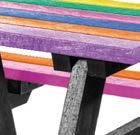






At KBS Depot, we pride ourselves on o ering a broad range of Recycled Plastic products (including Picnic tables, Seats, Benches, Litter bins, Bollards and Planters) from the UK’s leading manufacturers.






























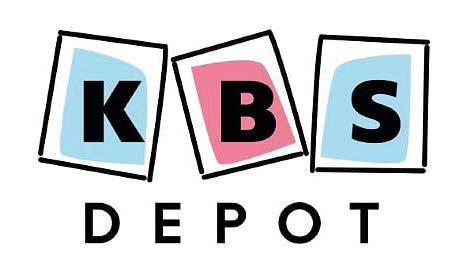
We also o er indoor or outdoor Notice Boards, Bike Shelters/Stands, Bollards, Litter Bins, Covered Walkways, Storage Solutions, Tree Seats and Planters. Please see our website for our full range. Please mention QA Magazine when making an enquiry or order.






See our full range at:
















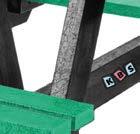













www.kbsdepot.com 01366 310500 admin@kbsdepot.
Outdoor Furniture for Schools Call us now for a free no obligation quote
Everlasting Weather Proof Sustainable Recycled Maintenance Free
Real teachers explain how to spot AI generated answers
With AI becoming an increasingly bigger presence in society, questions are rightly being asked about how it can be used in education, both positively and negatively - with one of the most common concerns being ‘could students realistically use AI to cheat?’
Whilst some have played down the risk of AI being used to cheat in schools, the experts at High Speed Training, providers of online courses in education, carried out an experiment, asking a focus group of UK-based teachers to blindly review both AI and student generated content*, to see if they could identify the AI created content, and provide a grade for each answer. The focus group of 15 secondary school level
teachers, from several written, essay-based subjects, were each provided with two answers to real questions from past exam papers covering English Language, Geography and Religious Studies, and were required to say whether they believed the content was written by students or AI. A focus group of three GCSE aged students created the human content, with the same questions also answered by ChatGPT. With each participant
reviewing one AI and one student answer each, three in five (60%) teachers struggled to identify at least one answer they were asked to review, with one in three (33%) failing to correctly identify both of the answers they reviewed. In total, nearly half (47%) of all of the answers reviewed by the focus group were wrongly identified. Teachers were also asked to provide a rough indication of the quality of the answer, by assigning a numerical ‘grade’ of 1 to 5. Answers generated
by ChatGPT scored an average grade of 4, with teachers generally viewing the content to a high standard. Teachers were also more likely to assign a higher grade to an answer when they believed it was AI. When teachers correctly identified AI content, they assigned an average grade of 4.3, whilst the same answers were graded at an average of 3.7 when the teacher thought they were human, suggesting that teachers expect AI to create

20 |www.qaeducation.co.uk | FEATURES |
high quality content. The study also experimented to see whether another AI program could detect whether the answers from the study were human or AI. Entering both the student and ChatGPT answers into Google Bard, the experiment found that the software isn’t always successful in identifying where AI has been used, as has already been found out by some in the education sector. Of the different answers, Bard misidentified a third (33%), wrongly identifying one human answer as AI, and two AI answers as human.
Dr Richard Anderson, Head of Learning and Development at High Speed Training, comments: “AI and chatbots have been huge topics of discussion recently, with many in the education sector wondering if they could be used to cheat in exams and coursework. We wanted to put this to the test to see whether it actually does pose a risk in schools and learning environments.
“Whilst it’s concerning that 60% of teachers struggled to correctly identify where AI had been used, many of the teachers involved had not encountered AI before, and we’re confident that with awareness and exposure, teachers will be able to correctly spot it more frequently. Free and easy access to software such as ChatGPT and other bots is still a relatively new phenomenon, so there is bound to be a period of adjustment for teachers and educators.
“There are positives from the experiment, including that there are several tell-tale signs that teachers can use to spot where a student may have used AI to create their work. As these technologies continue to evolve, educators will have to continue to develop their skills and training to ensure that children are still receiving the best education they can.”
The teachers provided feedback on each answer, these are the five most
common giveaways they shared that the text had been AI generated:
1. Americanised language
One of the simplest identifying signs of AI use is Americanised spelling. Whilst this is easy for students to remove if they know what they’re looking for, they may overlook it, leaving the words as small clues a teacher can pick up on.
2. Lack of personal case studies
Students are instructed to use memorised and previously studied examples to help illustrate their points and reinforce their argument. A total lack of anecdotal evidence and a reliance on the information provided with the question, could suggest AI involvement.
3.
Vocabulary used
Whilst the AI was instructed to answer questions in simplified language, several teachers spotted that some of the
answers contained language that you would not expect to see from GCSE aged pupils. Students tend to use more informal language and a regular use of advanced vocabulary is not common.
4. Formulaic structure
AI will try to neatly package an answer and cover all points that it is asked to concisely. The teachers in the study pointed out that some answers seemed to try to fit everything in, whereas many students would be unlikely to address every single point in a question.

5. It’s a little too perfect
Even the best students make some small mistakes in their writing, whether it’s spelling, grammar, or a tendency to waffle and include unnecessary words. AI created content is unlikely to include any of these, and may stand out as being a little too perfect.

21 www.qaeducation.co.uk | | FEATURES |
images courtesy of iStock
How Teachers Can Use Their Allocated Budget to Promote a Love for Reading
Reading is an essential skill that aids academic performance, personal growth and development. As educators, teachers have a responsibility to instil a love of reading in their children - within the parameters of their allocated budgets.
This article will propose several ideas for how primary school teachers can develop a love of reading in their classrooms, as detailed by Madeleine Lindley Ltd - a children’s book supplier and long-standing literary specialist.
The Importance of Developing a Love for Reading
According to research, children who read for enjoyment and acquire excellent reading skills are more likely to succeed academically. Reading is an important part of many school subjects, not only English; it has also been found to improve conceptual knowledge of mathematics. Reading - and getting lost in a book - is invaluable for enhancing mental health in children. Engaging in reading activities
stimulates their imagination, fostering creativity and problem-solving skills. Through literature, children can explore diverse perspectives and emotions, developing empathy and a better understanding of themselves and others. Reading also provides an escape from daily stressors, offering a peaceful and calming experience. As Anissa Trisdianty famously said: “Reading is dreaming with open eyes.”
Reading aids in the development of vocabulary, grammar, and comprehension abilities. Children who read on a daily basis are exposed to a broader range of vocabulary and sentence patterns, which aids in the development of their language abilities. This can also help them enhance their writing skills as they become familiar
with various writing styles and strategies. Apart from the practical advantages, encouraging a love of reading in children can have a significant influence on their emotional and social development. Reading may provide comfort and pleasure, while assisting children in developing empathy and compassion for others. It can also be an excellent method for children to bond with their parents or carers by sharing stories and discussing characters and themes.
Reading can evolve into a lifelong passion, offering countless opportunities for learning and personal growth. Teachers can foster a lasting love for reading by encouraging children to start reading from a young age, and reading for pleasure.

22 |www.qaeducation.co.uk
| FEATURES |
Allocated Budgets: A Chance for Teachers
Teachers who have access to budgeted funds for classroom materials and activities can use this budget to meet the goal of creating a varied and engaging classroom library - which is accomplished by achieving the criteria listed below.
A Broad Range of Books
Purchasing a selection of books that appeal to various interests, reading levels, and genres is critical. Instructors should prioritise the purchase of high-quality, interesting, and age-appropriate books that will pique children’s interest and encourage them to read. To provide a well-rounded collection, consider incorporating graphic novels, nonfiction, and classic literature.
Representation and Inclusion
In order to promote diversity and representation in the classroom, novels with a variety of characters, cultures, and opinions must be included. Through exposure to varied narratives and stories, children are more likely to identify with characters that reflect their own experiences and gain empathy for others. Make a concerted effort to choose novels with varied characters and voices. You should also select books by authors from different backgrounds to encourage children to aspire to be great writers.
Create a Cosy and Inviting Reading Area
Despite the size constraints of many primary school classrooms, there is often
an opportunity to make an inviting classroom book corner.
For the book corner to promote a love for reading, it needs to be well organised, age-appropriate, stocked with up-to-date authors and with nonfiction that isn’t out of date. It is vital that the corner is easily accessible to everyone in the classroom and books for everyone’s needs to instil a love of reading for pleasure. You should organise the corner into genres, authors, series, fiction and non-fiction separated, making it easy for children to make choices.
Encourage Reading for Pleasure
Reading does not have to be for academic purposes - you should encourage reading for pleasure and help foster a lifetime passion for reading.
No one has said it better than Daniel Pennac’s ‘The Rights of the Reader’. Sparking excitement is key to cultivating a passion for reading. Hosting book fairs and inviting local bookshops, publishers or authors to participate is an effective way to generate enthusiasm for reading among children. Children can discover new books, engage with authors, and share their excitement for reading with their peers.
Invite authors, illustrators, and other literary professionals to visit the school and talk to the children giving them a unique insight into the world of literature. Children may be inspired to read more and even consider pursuing careers in the publishing world.
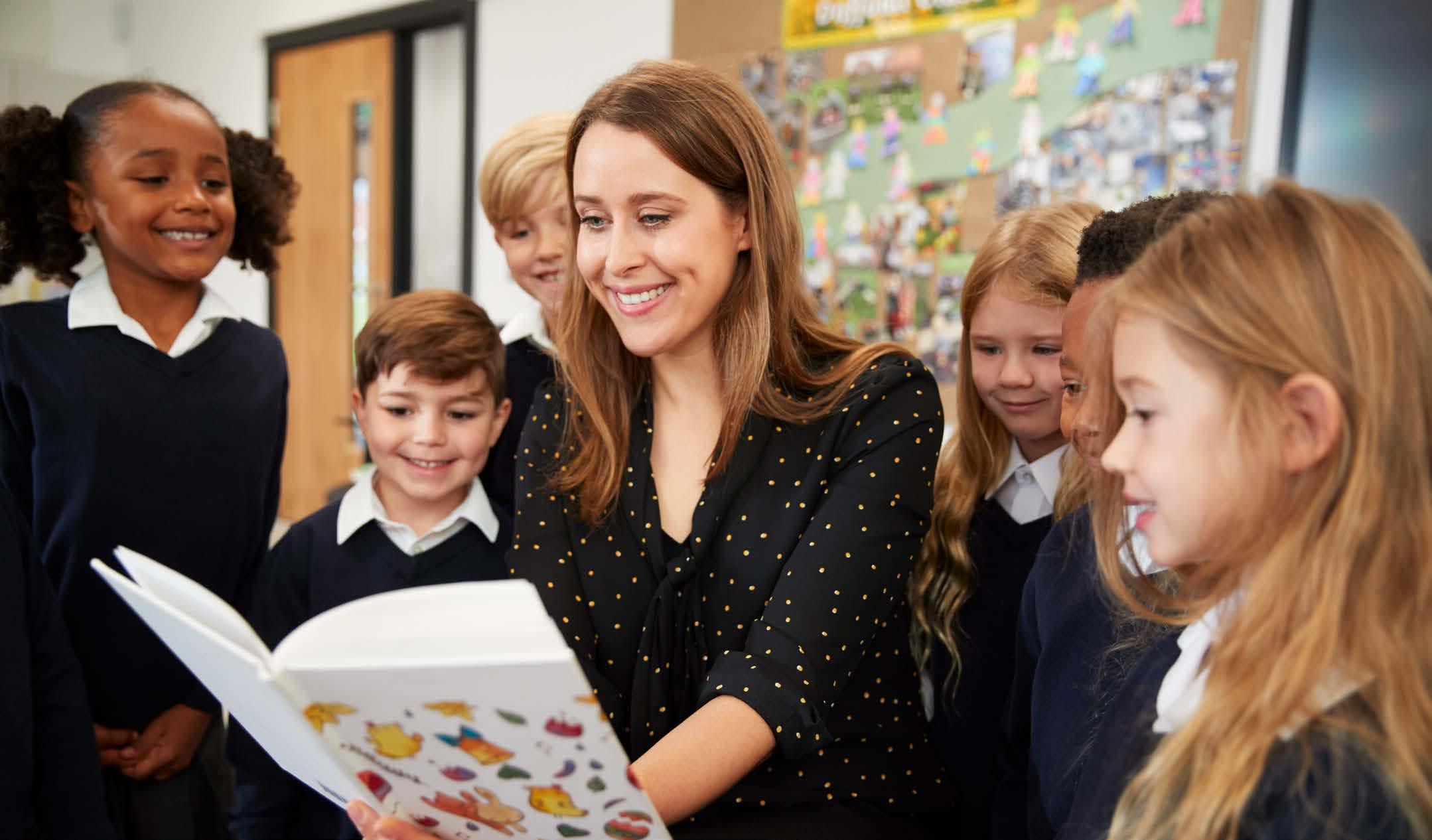
Offer Opportunities for Professional Development for Teachers
Wherever feasible, teachers should budget for their participation in seminars or conferences that promote literacy and effective reading skills. Professional development may assist instructors to keep current on best practices and build a reading culture throughout the school. Cooperate with Local Libraries and Book Sellers
Create partnerships with local libraries and children’s book suppliers to gain access to engaging resources and launch cooperative reading campaigns.
Engage parents in reading initiatives
Encourage families to visit the local library and allow parents and children to choose books together from the school library or book corner. Story sacks are also a great way to encourage home-school links and encourage reading at home.
Assess and Modify Reading Promotion Methods
Evaluate the success of your reading promotion efforts on a regular basis and make changes as needed.
Fostering a love of reading is an important aspect of a teacher’s responsibility in moulding their pupils’ future. Teachers may nurture a lifetime passion for reading by tactically utilising allotted budgets to develop interesting and varied classroom libraries, organise events and activities, and cooperate with the local community.
23 www.qaeducation.co.uk | | FEATURES |
images courtesy of iStock
How the Relational Cultures of Girls and Boys in School Affect Everything
Andrew Hampton, author of ‘When Girls Fall Out and Working with Boys –Creating Cultures of Mutual Respect in Schools’, talks to QA Education about his work on the relational cultures of both girls and boys in school.


‘Relational Cultures’ is a very useful expression which refers to all aspects of the way pupils in school relate to each other. The most obvious and easily observable cultures are those which manifest in the friendships, interactions and conversations that take place within
the boy and girl cohorts in a year group. The nature of these conversations and interactions lies on a spectrum between being consistently supportive, compassionate and respectful at one end, and mean, harsh and aggressive at the other end.
If you ask both boys and girls that question they will tell you that friendships are formed very differently. There is much to be gained by explicitly acknowledging the differences when forming policy to supports both genders.
In their the book The Incredible Teenage Brain, Hohnen, Gilmour and Murphy conclude something we tend to take for granted: the absolute imperative for most children and adolescents to form strong social connections. When a child tells the grownup at home the story of their day, they tend not to talk about what they learnt but about the social interactions they had with their peers. Given that the quality of their social connections is key to their happiness and fulfilment, it is no surprise that I advocate a far greater focus by schools on pupils’ relational cultures than is the norm.
The Relational Cultures of Girls
There is an existential imperative for every school-aged girl, throughout the world, to have at least one friend, in their year group, in their school. If a girl comes to school and walks into Registration only to realise that she has no one to sit next to – that can be utterly devastating for that girl; she can feel like she just wants to return home. When girls fall out with each other the conventional response from schools is to use a ‘justice tools’ approach. In other words, alongside mediation and restorative practice, teachers interview and probe for the truth in the hope that they will get to the bottom of what caused the friendship turbulence. They assume that
24 |www.qaeducation.co.uk | FEATURES |
finding the truth will enable them to dispense justice that will be accepted by all and that, after some sanctions and/or firm words, things between the girls will return to normal.
The problem with this approach is that it rarely, if ever, works. In fact, if you ask the girls whether things get better or worse when the adults (teachers or grownups at home) get involved in their friendship issues, 99% will tell you (with some emphasis) that things get considerable worse.
The answer is simple but also very nuanced. In a nutshell, teachers should stop taking written statements and trying to mediate – and instead use an empathybased approach which is strictly nonjudgmental, non-didactic and which uses a pedagogical stance which can best be described as Guided Reflection. All this assumes, of course, that the conflict between the girls does not amount to bullying – if it does then the Anti-Bullying Policy must apply.
In 2017, after several years of successfully supporting the girls in my school using these ideas (I was the Headteacher), I launched the approach I had been using as a training opportunity for teachers. The approach is called Girls on Board – and a quick search online will tell you more and get you access to the training. Using this approach, teachers can evoke a strong sense of empathy amongst the girls because, at the heart of most fall-outs, is the quest for trusting and reliable friendships. Expressed another way, nearly all girls fear isolation and once they are reminded that this fear is common to nearly all of them, they seek to find resolution and lasting harmony. By supporting the girls but not interfering, teachers are empowering the girls to navigate the choppy waters of friendship dynamics for themselves.
Over a thousand schools, in countries as far flung as China, USA, Nigeria and UAE (and the UK of course) teachers have reported that the adoption of the Girls on Board approach has created strong, mutually-supportive relational cultures amongst the girls. These new relational cultures have also meant teachers are able to spend considerably less time trying to find solutions to friendship ructions.
The Relational Cultures of Boys
Most pupils agree that the way boys form friendships is different to girls. When we start to scrutinise the relational cultures
that govern the interactions between boys we discover a serious need to help them get it right. At worst, the way boys relate to each other (and I am mostly referring to boys in Year 8 and older) can be dominated by a form of masculinity which is harsh, unsupportive, over-competitive and aggressive. We see this manifested in their conversational and physical interactions which feature banter as a dominant component. Boys use banter with each other like they use oxygen to stay alive. Banter, defined as the exchange of teasing remarks or physical gestures, is used by boys to de-sensitise them to the thing that they fear most; that is humiliation. When you pass many conflictual interactions and poor behaviour through this one, pivotal prism of the ‘fear of humiliation’, then insights are gained and new strategies to support boys emerge. The way schools have been supporting teenage boys is not working. Dreadful and shocking child-on-child sexual abuse is
boy and man they want to be and also what kind of boys and men they are going to be as a group. In other words, they form and refine the relational culture which will govern nearly all their interactions – verbal and physical – for the next five years. They decide whether they are going to be supportive, considerate and compassionate towards each; or are they going to be over-competitive, mean and constantly making hurtful and derogative remarks. This manifests in their conversations, and most commonly in their banter. So, we need to teach them how to regulate their banter so that it is teasing and not just horrible. Even more importantly, in the era of one-click access to pornography, we need to guide them not to allow their banter to become sexualised.
still being perpetrated on girls in school every day. We are letting both girls and boys down constantly by ignoring the role the relational cultures of boys in school plays in causing that sexual abuse. I lay out the answers in full in my book Working with Boys – Creating Cultures of `Mutual Respect in Schools. In brief, the book posits several ways of thinking which have not been tried before but which worked when I deployed them in my setting.
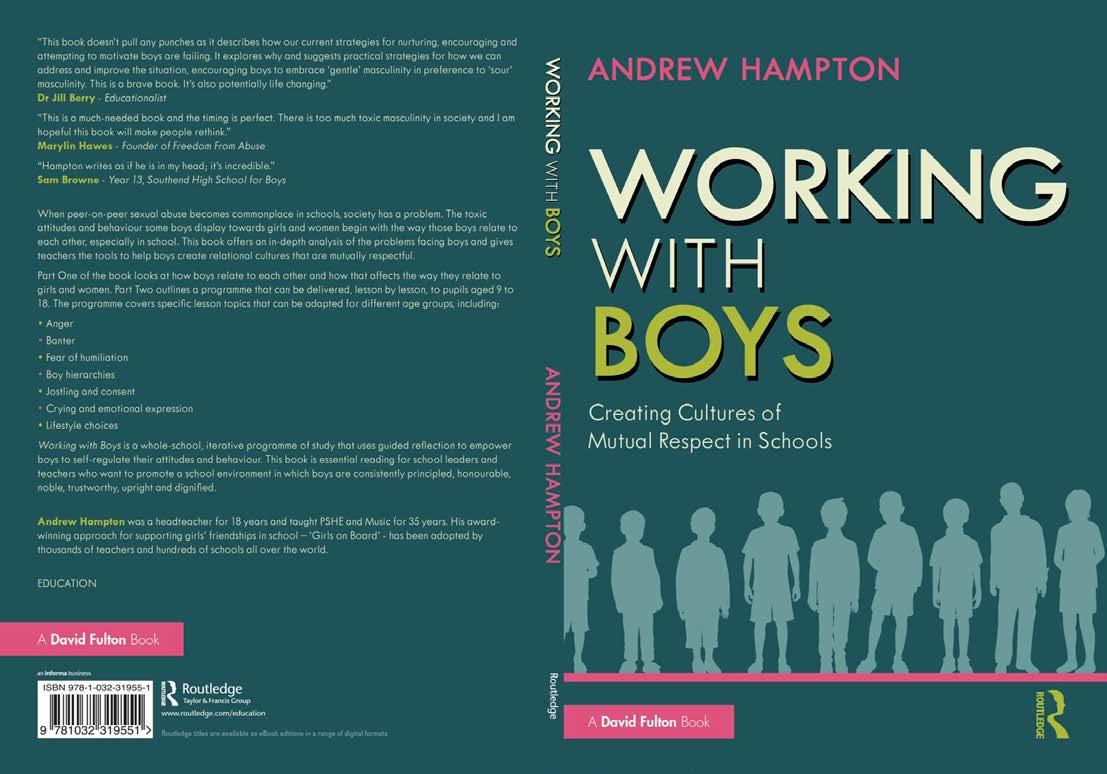
In trying to support boys to define and adopt positive forms of masculinity, schools usually start much too late. Though toxic and misogynistic views of masculinity often become dominant in Years 8, 9, 10 and older, it is before then we have to intervene.
It is in Year 7 in particular that we see boys forming their identity around what kind of
Hierarchies of social influence are important and present in most boy cohorts. The currency of social influence is humour. If you can make people laugh, then your social standing rises. Boys can find themselves making jokes that are sexually demeaning and, to continue to get a laugh, they find themselves having to be ever more gross and disgusting in their depiction of girls and female staff in their school. The result is that, after a couple of years of this daily banter (which continues on social media platforms in the evening and at night) boys become so inured to the possible shock of these words, thoughts and images, they end up behaving abominably towards girls. That doesn’t excuse this behaviour, but it goes some way to explaining it.
If we’re serious about supporting pupils in school more effectively we have to acknowledge that their social interactions are key to their ability to thrive. For girls, we need to evoke their empathy to help them create relational cultures that see the avoidance of isolation as imperative. For boys, we need to understand that a non-judgmental, non-didactic intervention in Year 7 is the only way to stop their social interactions being dominated by sour forms of masculinity. We need to help boys de-sensitise themselves to their fear of humiliation and, through Guided Reflection, support them in the creation of relational cultures which are gentle and work for everyone.
25 www.qaeducation.co.uk | | FEATURES |


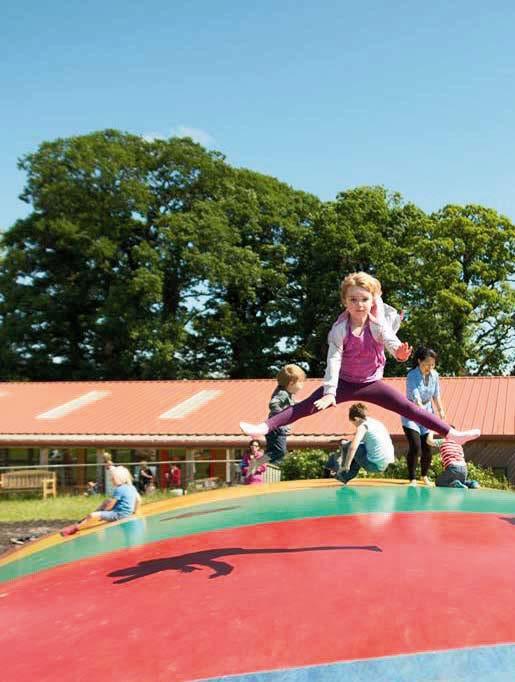



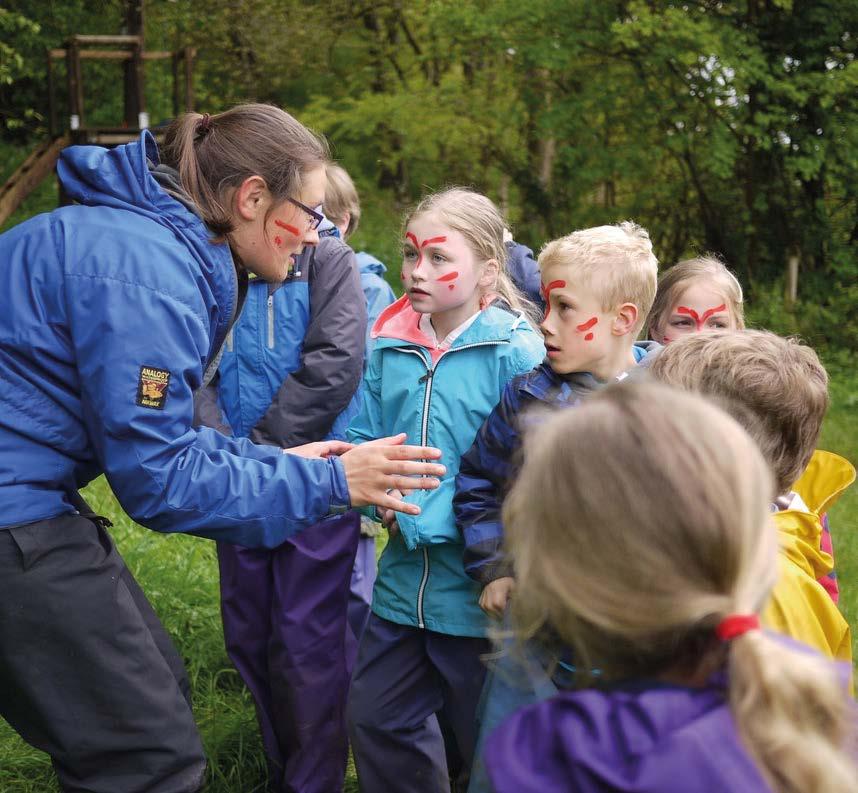



27 www.qaeducation.co.uk | | REQUESTED PRODUCT SHOWCASE | - open every day february to januaryTel: 01786 841309 | www.briarlandsfarm.co.uk Tractor & trailor Rides / GianT JumpinG Pillows new fairie Walk / tractoR Go-Karts Farm animals / fooTball Golf Family fUn FoR all aGes! Welcome to our outdoor classroom Bruton Somerset BA10 0BA 01749 812 307 www.millonthebrue.co.uk QAEDUCATION SERVICES AND PRODUCTS Keeping you on top of new developments in the education sector Visit www.qaeducation.co.uk Follow us @qaeducation
The design and planning flexibility, speed of construction and durable, cost effective operation of Rubb sports structures provide schools, colleges and universities with a competitive edge.

Rubb indoor sports facilities can function as one large playing area or be sub-divided into smaller areas for younger age groups or training programmes. Sports surfaces can be divided using moveable rebound walls, nets or more permanent dividers. Our high-quality membrane materials and post-production galvanized welded steel frames deliver durability over time, making the cost of maintaining Rubb sports buildings more economical compared to conventional sports hall structures.
Translucent membranes allow natural daylight to illuminate the sports hall while the white roof surface reflects heat. Optional Thermohall® insulation minimises heat transfer, prevents condensation and virtually eliminates thermal bridging and air infiltration. Find out how we can support your project and contact Rubb today.


28 |www.qaeducation.co.uk
| REQUESTED PRODUCT SHOWCASE |
excellence in engineering Schools pick Rubb’s custom solutions for their durability, flexibility, and quick construction. Explore Rubb’s alternative sport facilities and rental options on our site or get in touch with our team today. SCAN FOR MORE Building Systems info@rubbuk.com | +44 (0) 191 482 22 11 | www.rubbuk.com Protecting players from the elements Do you have a fully assessed evacuation plan? Ensure safety for all, including those with invisible disabilities KFive offers comprehensive evacuation solutions designed to meet legal safety requirements. We prioritize inclusivity, catering to diverse needs. Trust KFive for reliable equipment, training and enhanced evacuation plans. Contact us for an inclusive solution! info@kfive.co.uk 01582 882839 www.evacuation-chair.co.uk
Alternative, cost-effective sport facilities
image courtesy of Rubb Buildings Ltd 2023





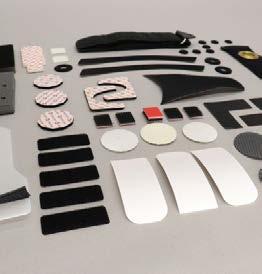


















30 |www.qaeducation.co.uk | REQUESTED PRODUCT SHOWCASE | We’re a team of experts ready to help give advice on the types of VELCRO® Brand adhesives and VELCRO® Brand tapes, we can cut bespoke size and length pieces for your projects and offer bulk discounts.
the
in-house to your specification and by offering a late cut off time of 4pm Monday-Friday, sending out via DPD on Next
day delivery
service
We have
ability to make straps
Working
we believe we can offer the best
on a huge range of tapes.
Versatile VELCRO® Brand products T: 01373 827111 E: sales@mpdhookandloop.com AUTOPA POSTS - HINGED & TELESCOPIC BOLLARDS - STEEL & STAINLESS HOOPED BARRIERS CYCLE STANDS & RACKS CYCLE SHELTERS HEIGHT RESTRICTORS SWING GATES ARM BARRIERS SMOKING SHELTERS SEATING 01788 550556 info@autopa.co.uk www.autopa.co.uk AUTOPA Limited, Cottage Leap, Rugby, Warwickshire, CV21 3XP UK MANUFACTURERS OF STREET FURNITURE 90x126_Advert.indd 1 11/08/2022 14:00:34 HEAT PUMPS - SOLAR THERMAL - ELECTRIC & GAS WATER HEATERSMETERING -BOILERS - CYLINDERS - PREFABRICATED PLANT ROOMS Guidance For Schools & Academies Design | Supply | Service Avoid unnecessary capital costs Cut carbon emissions Gain insight on future operational costs Future proof net zero investments LET US DO YOUR HOMEWORK Looking to move from gas to low-carbon electric? Adveco Live Metering gives you the information you need.. 01252 551 540 sales@adveco.co Adveco.co Artificial Grass & Wetpour Safety Surfacing Call: 01782 398848 or 07807 063734 info@sunshadeservices.co.uk www.sunshadeservices.co.uk Sunshade Services s Ltd. Play Areas, Outdoor Dining & Bar Areas, Shaded Seating, Pool Areas, Dog Wash, Water & Disposal Areas etc.
If you’re a local authority school, you automatically qualify for a 30 day credit account with MPD!

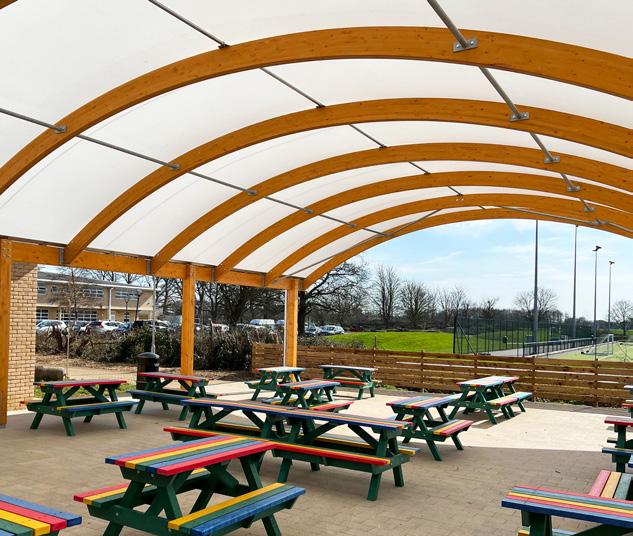






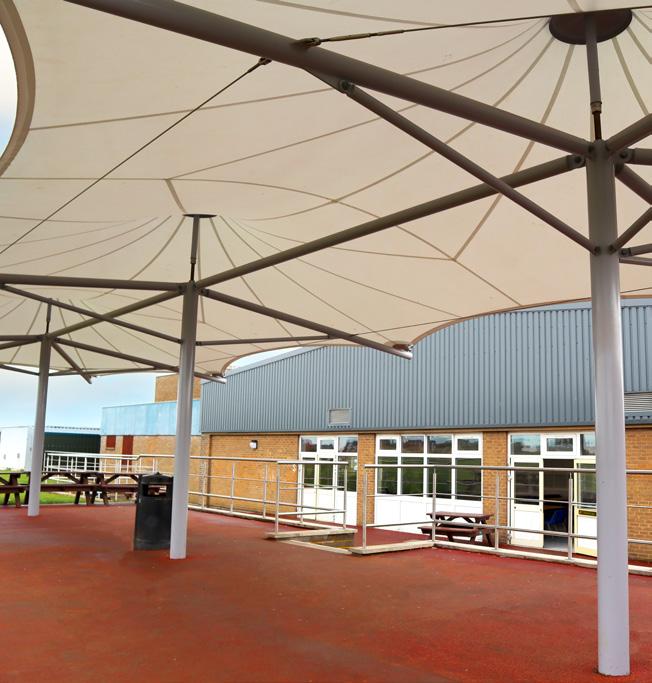



31 www.qaeducation.co.uk | www.fordingbridge.co.uk info@fordingbridge.co.uk 01243 554455 Canopy and walkway solutions to enhance outdoor learning opportunities throughout the year. Maximise educational environments with a range of Fordingbridge structural designs offering excellent safeguarding for students and ensuring impressive canopy coverage, even in those seemingly inaccessible spaces. We offer: - Bespoke canopies - Turnkey solutions - Optimised walkways - Sustainable buildings Contact our team to arrange a complimentary site visit and survey.
Philip Morant
Arthur Mellows
Bexhill
Hopwood Hall
King Alfred
Conifers
Montsaye
Holmes Chapel
Chipping Campden
West Bridgford
SPAZIO FOLDING DOORS
CONCERTINA FOLDING DOORS


•PVC, wood or fabric construction

•Top hung only •Made to measure
•Easy to clean •Vision panels available
SILENCIO ACOUSTIC WALLS
•Made to measure •Full survey and install service
•Top hung or bottom roller options •46-56db sound reduction
•Vision panels and dry wipe board options


We offer a range of folding doors and room dividers that have been extensively used in schools and educational facilities for many years. Perfect for creating extra teaching areas, break out areas or creating extra storage, we offer products to suit every budget.
Keys from £2.02 per key + VAT
| REQUESTED PRODUCT SHOWCASE |
01580 763593 |
| www.spaziofoldingdoors.co.uk
info@spazio.co.uk
easy way to learn and teach spelling!
Spellzone unlocks the mystery of English spelling and adapts to all abilities.

Students can work on tailored learning pathways at their own pace and on any device.



1000s of pre-loaded word lists and create your own to use with activities, games, and worksheets.
Time-saving reporting tools allow teachers to monitor progress and evaluate student activity with just the click of a button.
New for Schools… Faith in Phonics





 l Written by Jackie Day l Phonics Consultant Dr Marlynne Grant
l Written by Jackie Day l Phonics Consultant Dr Marlynne Grant
33 www.qaeducation.co.uk | | REQUESTED PRODUCT SHOWCASE |
Box Set 2 Coming in 2023 The new
in Phonics series of books aims to complement a school’s existing reading scheme with decodable texts, providing a Christian faith focus. The books will enable young children to read Bible stories for themselves. With adult support, the reflections and questions provided at the end of each story will help children to apply the stories, and their Christian virtues, to their everyday lives, thus reinforcing the school ethos. www.rpbooks.co.uk 01420 88222 customercare@rpbooks.co.uk
Faith
12 book set Reading levels 1 to 3 OUT NOW! Box Set 1 Introductory price: Only £29.95! redemp ori s t publications redemp ori s t publications redemp ori s t publications redemp ori s t publications redemp ori s t publications redemp ori s t publications FiP Ad 123x90mm.indd 1 15/12/2022 13:55 www.spellzone.com
and
the
Spellzone_QA-Education_130_90x126.indd 1 02/05/2023 12:49:29 SEXUAL VIOLENCE & ABUSE COUNSELLING BY SEXUAL VIOLENCE & ABUSE. Emotional & practical support 1 to 1 Counselling ISVA service & criminal justice system support Group support & confidence building CPD Accredited Training Children and Young People’s Service ☑ ☑ ☑ ☑ ☑ ☑
A fun
Scan
QR code for a 30 day free trial plus a 30% first-year discount.
THE HYDRATED BRAIN – BENEFITS OF PROVIDING WATER TO CHILDREN
The qualities of water will promote good health during their entire lifetime so it is a very good habit to advocate. Hydration is particularly important for children of all ages who have higher water requirements in relation to their body weight than adults and do not always realize that they are thirsty. Younger children are made up of 75% water and a mere 2% drop in body water, and mild dehydration can set in, which can trigger fuzzy short-term memory, cause problems understanding maths and reading, and difficulty focusing on computer screens. Can
give them headaches and makes them feel sleepy and irritable which can contribute to behavioural problems. Good hydration keeps their brains active and working clearly to help concentration and learning, and has also shown to help children with Attention Deficit Disorder increase their attention span. .
Extra hydrations is also always required prior to and during PE sessions as it maximizes physical performance and energises muscles.
As well as the learning advantages, water is essential to maintain good health and is necessary for all major bodily


systems. To name a few, it helps regulate body temperature, moistens eyes, nose and mouth, dissolves minerals and nutrients and accessible to the body, looks after our kidneys and liver and bowels, and maintains correct amounts of circulating blood to the heart thus regulating the pulse. Fortunately, the trend with older children seems to indicate that they are now happy to carry a bottle of water with them, but younger children may need some encouragement. Unfortunately, we all now have to cope with periods of very high temperatures which can be almost intolerable when confined for most of the day in buildings which are not air conditioned. This can have major detrimental effects on both the physical wellbeing and cognitive abilities of staff and children alike. Various measures can be implemented to try and mitigate some the effects of the heat. The use of fans, blinds, allow fresh air in etc., will all help a little, but the high humidity that can be present with high temperatures can make it is harder to keep cool if we do not have sufficient fluid available in our system to promote sweating. It is especially important during these periods to allow children to fill bottles with chilled water
to drink during lessons as good hydration will help regulate body temperature and allows the process of sweating to help them to cool down. Water is the single most important component of the human body. We are very fortunate to have safe water to drink, but many children do not like the taste of chlorine, especially if the water temperature is ambient. If water is filtered and chilled it becomes much more palatable to drink and will encourage regular hydration. By providing filtered and chilled water and making sure it is readily available, the school setting plays a very important part in educating children in the health benefits of drinking water. Ensuring adequate hydration not only protects their long term health, but it also helps children to achieve their best personal educational potential by contributing to the brain power which maintains mental clarity and concentration during lessons.

34 |www.qaeducation.co.uk | REQUESTED PRODUCT SHOWCASE |
The School setting is in a unique position to be able to encourage and promote water as an ideal beverage for children.
images courtesy of AAFirst
Cosmetal Niagara TOP 120 Mains Countertop Water Cooler
The Cosmetal Niagara is a high-capacity freestanding water cooler, Ideal for locations with high demand like canteens and kitchens.

• 120 litres of chilled water per hour.


• 31cm dispensing height to allow for the filling of bottles.
• UV option available, this would help kill off any bacteria that could be in the water.
• Inlet solenoid for safety purposes to avoid flooding.
• Sparkling option available
Cosmetal
Niagara Mains 120 Freestanding Water Cooler
The Cosmetal Niagara is a high-capacity freestanding water cooler, which will deliver 120 L/hr of chilled and Ambient water

• 120 L/hr of chilled and Ambient water
• Direct Chill for ultimate hygiene
• WRAS Approved
• The overflow from the drip tray can be plumbed directly to a drain or to a storage container
For more information contact us at:

35 www.qaeducation.co.uk | 01727 226 464 sales@watersystems4u.co.uk
Water Dispensers for Offices, Schools, Gyms and Domestic Head Office: Watersystems4u, 4 - 6 Spicer Street, St Albans, Hertz, AL3 4PQ
IMP Software, as MAT finance experts hit 300 customer milestone
Unity Schools Partnership, a soon-to-be family of 33 secondary, primary, middle and special schools, has become IMP Software’s 300th MAT customer.

The multi-academy trust (MAT) has purchased IMP Software’s purposebuilt tools which provide budgeting, forecasting and reporting software. Sarah Garner, Deputy CEO and Director of Finance at Unity Schools Partnership, said: “We are absolutely delighted to be working with IMP Software. This marks the start of a new chapter for Unity SP as we look to work more efficiently at producing budgets, consolidating financial information, and providing more valuable insight for school leaders allowing them to make more informed decisions about their staffing structures and their school
development plans.”

IMP Software has also recently launched its new Integrated Curriculum Financial Planning (ICFP) product, which means MATs will be able to maximise educational success by ensuring the effective deployment of resources and design the best curriculum they can afford.


Will Jordan, Co-Founder at IMP Software, added: “Reaching 300 MATs is a wonderful milestone for our company. We know the world of MAT finance is incredibly complicated and our products are built for the unique challenges that trusts face. They are not just collections of
schools, but complex and ever-changing organisations with many moving parts. They require features that can’t be improvised by bolting together school solutions. So, we are all about building MAT-first solutions to make MAT finance smarter.”

IMP Software, which was established in 2019 and is based in Exeter and Peterborough but operates as a virtual team nationwide, works with nearly 3,000 schools through its customer MATs, supported by a team of over 50 specialists.
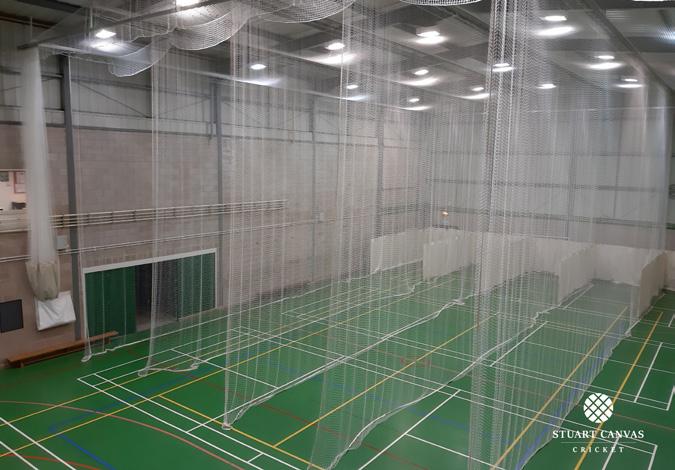

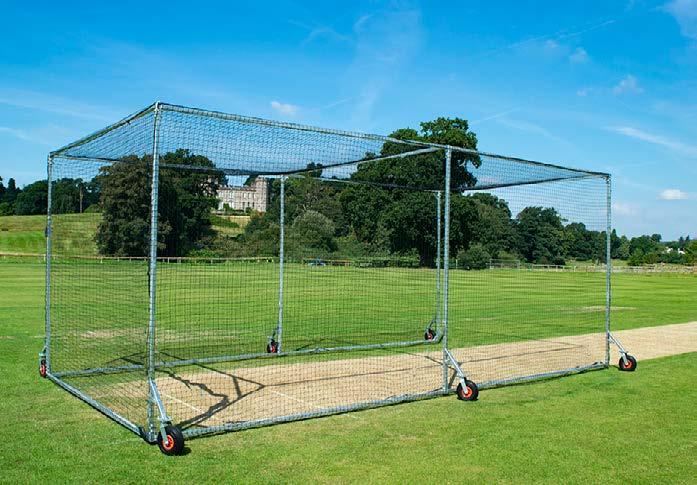
36 |www.qaeducation.co.uk | REQUESTED PRODUCT SHOWCASE |
appoints
Unity Schools Partnership
www.stuartcanvas.co.uk | sales@stuartcanvas.co.uk | 01925 814525
Cricket Ground Equipment •Domed Mobile Covers •Wicket Flat Sheets •Sight Screens •Indoor Sports Hall Netting •Mobile Batting Cages •Electronic Scoreboards
image courtesy of iMP Software
Leading Manufacturers of School























37 www.qaeducation.co.uk | | REQUESTED PRODUCT SHOWCASE | Keeping you on top of new developments in the education sector Visit www.qaeducation.co.uk Or follow us @qaeducation Temporary Catering Facilities During Refurbishment Mobile Kitchens Ltd specialises in the hire of temporary catering facilities and foodservice equipment We offer a free design service, and project management from concept through to delivery and installation on site, plus full technical support throughout the hire period. Email: sales@mk-hire.co.uk Call: 0345 812 0800 or visit www.mk-hire.co.uk The UK’s Best Supplier of Capital Equipment COOKING PREPARATION REFRIGERATION WAREWASHING DISPLAY BEVERAGE MACHINES STORAGE TRANSPORTATION www.allianceonline.co.uk QA Education QP Landscape Ad – KIT.qxp_Layout 1 07/02/2023 13:03 Page 1
Education Estates® - immerse yourself in the education setting of the future!
Education
The organisers expect 2700 attendees over two days, looking to discover the education setting of the future and discuss their own specific challenges, whether that is a brand new building or new initiatives that enhance an existing facility.
The event is targeted at those who influence, design and build educational facilities, bringing together policy makers, architects, suppliers, directors of estates and head teachers. All share the common goal of maximising the potential of our young people through innovative design and imaginative solutions.
This year’s conference programme promises to be truly inspiring, with a Department for Education briefing on policy and design, and sessions that address unlocking efficiency, zero carbon, sustainability, safety, inclusion, digital future and enhancing the learner’s experience. In total, over 120 experts will be speaking, sharing their insights and lessons learned.
All the main players will be represented at the exhibition, with a wide range of products and services designed to elevate learning environments and create inspiring spaces for students and educators. Big names include Arcadis, Atkins, Galliford Try, TG Escapes modular eco-buildings, Cundall, Apteriors, Reds10 (UK), Kier Construction, IBI Group, Morgan Sindall Construction, Lawray Architects, LocatED, Faithful+Gould, Portakabin, Salix Finance, Bouygues, Fusion21, Rider Levett Bucknall, Gleeds and Skanska UK. The exhibition is always evolving and, this year, many will be taking part in the EduFringe programme, a series of events that will boost the visitors’ experience and give exhibitors the chance to place their latest products in the spotlight. Highlights include the TG Escapes Modular ecobuildings relax and reboot lounge, the EduFest drinks reception sponsored by Chartered Institute of Building, and a ‘Campfire’, where exhibitors will host intimate sessions focussing on a specific
challenge.
The crowning glory will be the Awards Dinner, always a sell-out event, where the education sector celebrates excellence and achievement, and attendees can mingle in a more informal setting.
Education Estates® is supported by RIBA, The Trust Network, Chartered Institute of Building, LocatED, University Design Forum and the Modular and Portable Buildings Association.
Sponsor Partners are Atkins, Arcadis, Galliford Try and TG Escapes Modular eco-buildings.
Education Estates® takes place on 17-18 October 2023 at Manchester Central. The public sector can attend free of charge and the exhibition is also free to attend. A fee applies for private sector delegates. For more information or to register your place, please go to www.educationestates. com.

38 |www.qaeducation.co.uk
| EDUCATION |
There are just four months to go before the annual
Estates® Exhibition, Conference and Awards in October. Held in partnership with the Department for Education, Education Estates® is now in its 11th year and promises to be bigger and better than ever, with over 130 exhibitors.
Event Partner:


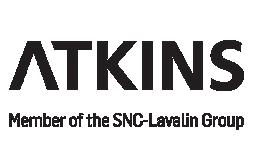
17-18 October 2023 Manchester

SEND VISIT THE STAGE
Sponsor Partners:
SESSIONS INCLUDE:
“Department for Education Update – Policy & Design”
• DfE Update – Policy & Design

“Learning from other sectors”
• Do You See What I See?
• Moments of joy: Designing for a child’s experience in education and healthcare settings
“Achieving effective inclusion”
• Achieving effective inclusion: Specially Resourced Provision, Assessment Centres & Specialist Units
• Improving Access to Listening in Mainstream Schools

www.educationestates.com

Centra l
Stage Sponsored by:
Education Estates®
Register for
2023
LLAIN ACTIVITY CENTRE

We provide residential and daily activity packages for schools, colleges, sports tours and families.
A wide range of accommodation on our 10 acre site includes our new Bell tent offering, the ‘Camping Village Adventure’ which proved popular with school groups for the 2022 season.
Our site also boasts a wide range of adventure activities with various ‘ropey stuff’ on our Sky tower, ‘wet stuff’ on the lake and the ever popular Mud assault course.

Please drop us an email for more information on any of our packages.
Diolch / Thank you. Gethin and the team
Activities
• Climbing and High ropes course
• Kayaking and Stand up paddle boarding
• Bushcraft
• Archery and Team games
Activity costs
Half day sessions cost £25 p.p. and £40 p.p. full day (group reductions available).
Activity times
10.00am – 12.30pm
1.30pm – 4.00pm
FULL DAY 10.00 – 4.30 including the MUD RUN!
ACTIVITY CENTRE
Residential and daily multi-activity centre for schools, groups & families
40 |www.qaeducation.co.uk
SCHOOLS & COLLEGES
School/College residential trips are our speciality and our team has amassed decades of experience to make sure the experience provided at Llain is the very best.
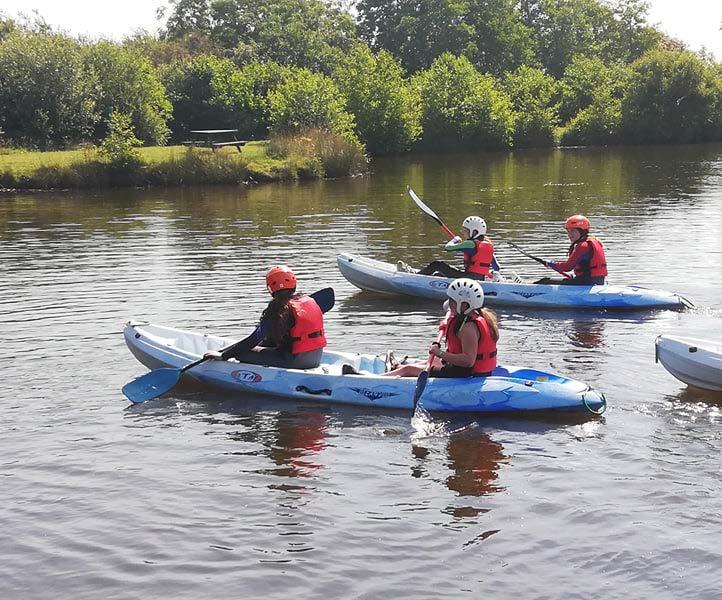


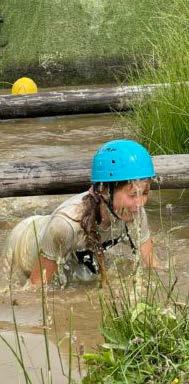
Our Activity Director, Gethin has 30 years experience under his belt running residential centres for both private and Local council organisations.
Get in touch and we will arrange to have a discussion about your requirements or we can come and see you at the school. You are very welcome to visit us to have a look around and we can come to the school to do a presentation / Q&A before your visit.
41 www.qaeducation.co.uk |
Llain Activity Centre Llanarth Ceredigion Wales. SA47 0PZ Tel: 07977 543396 E-mail: adventure@activity.cymru Web: www.llain.com Contact Us Visit our website for more information
The Duke of Edinburgh’s Award’s (DofE) has opened nominations for This is Youth

Recognising and celebrating the amazing, untold stories of the young people and adults behind the Award.
From teamwork and innovation to overcoming personal challenges, This is Youth will shine a light on the extraordinary things young people do on their DofE journeys. It will also highlight the exceptional commitment and passion of adults who deliver the Award and have a life-changing impact on DofE participants
all over the UK.
There are eight categories, including Trailblazer of the Year, Planet Protector of the Year?and Torchbearer of the Year –with six categories recognising young people, and two celebrating adults.
The DofE is more popular than ever with more than 323,000 young people starting their scheme in 2022/23, the charity’s annual statistics reveal.
Participants gave a huge 3.5 million hours of volunteering in communities all over the UK.
The record-breaking numbers show that 537,759 young people are currently working towards their Award across the UK – up more than 10% on 2021/22.

All current DofE participants or recent Award holders can be nominated for This is Youth, along with adults who support
young people to do their DofE in schools, community organisations, hospitals, prisons and more.


Nominations will be reviewed by a panel of high-profile public figures, young people and DofE supporters – with panellists looking for people who have pushed themselves to achieve something extraordinary on their own terms or made a positive difference to others.

Inspirational individuals or teams will be selected from each category and invited to a special celebration event in London. Their stories will also be shared throughout December to celebrate them and inspire and encourage others. Voting is open until midnight on 17 September 2023. For more information and to fill out a nomination form visit: DofE.org/ ThisIsYouth.
We will provide a DofE expedition that will be challenging We want our candidates to have an experience to remember for the right reasons, to learn something new.

To gain the award, but also to have fun
Structure
At bronze, training is taken from the beginning and it is always our aim for the teams to have the same instructor all the way through the award expedition phase. We value the support the school can give in the delivery of this training using your regular DofE sessions to reinforce the training.


For Silver and Gold each team has their own instructor, their instructor will deliver the syllabus but how the instructor does that to get the group to become a team is dictated by the group’s needs. Our team sizes we try and keep to 6 candidates per team. The instructor will be with their team for the Training, Practice and Qualifying to support the team. Instructors will assess each other’s teams.
Pastoral care Team goals
Pastoral care is the provision from us to make sure the physical, mental, and emotional wellbeing of the young people is cared for while on their Duke of Edinburgh Expedition. The commitment to pastoral care feeds into everything we do to ensure the young people have the best chance at success.

We believe it important that we, as the AAP, and the school, work as a team and share all necessary information relevant and pertinent to the young people present on the expedition. This includes medical, physical and emotional information that may or may not be included on an EHCP. This information will be treated as confidential and shared on a need to know basis.
Unlike some providers we will not be filling all the time on the qualifying with just traveling. We have the aspiration that the team’s goal will take a very minimum of 2 hours per day. We want young people to take more away from our expeditions than how hard it was each day.
The team presentation of their goal we believe to be important. We would support a school presentation evening or our instructors are used to organising online presentations where families, school staff and Governors could be invited.

42 |www.qaeducation.co.uk | DUKE OF EDINBURGH AWARDS |
“We think DofE is about the participants journey and not the physical one”
E: Info@aapursuits.co.uk Web: aapursuits.co.uk
Contact
Looking for an adventure trip that will challenge and inspire your students?
Look no further than Adventure Ardeche!

Join us in the South of France for an unforgettable week of excitement, team bonding, and adventure.
At Adventure Ardeche, we understand the importance of creating a trip that will both challenge and encourage your students. That’s why we offer a range of thrilling activities throughout the week, from high ropes courses to stand up paddle boarding to adventure walks. Your students will have the chance to step out of their comfort zone and push themselves to new limits, all while building strong bonds with their peers.
But the highlight of our trip is the two-day descent of the stunning Ardeche gorge, where your students will work together as a team to navigate their boat safely down the multiple rapids on the river. This thrilling experience will test their skills and build their confidence as they work towards a common goal.

Our experienced and qualified instructors will be with your students every step of the way, ensuring their safety and providing guidance and support as needed. We believe in empowering our students to take ownership of their adventure, so they’ll have the chance to make decisions and problem-solve as they navigate the river.
At Adventure Ardeche, we believe in the power of adventure to transform lives. Your students will develop key life skills such as grit, courage, determination, resilience, empathy, communication, and trust - skills that will serve them well in their academic and personal lives. They’ll return home with newfound confidence, a deeper understanding of themselves and others, and unforgettable memories. But our adventure holiday isn’t just about
personal growth - it’s also about having fun! We believe that laughter and enjoyment are essential components of any successful adventure, and our experienced instructors will work hard to ensure that your students have a blast throughout the week.
So why not give your students an adventure experience like no other? Join us in the South of France for a week of excitement, team bonding, and unforgettable memories. Book your trip with Adventure Ardeche today!
43 www.qaeducation.co.uk | | DUKE OF EDINBURGH AWARDS |
image courtesy of Adventure Ardeche
Addressing the Urgent Shortage of Foster Carers in the UK
Foster care plays a critical role in providing stable and nurturing environments for vulnerable children in the UK. However, in 2023, the country faces a pressing issue: a shortage of foster carers. This shortage is impacting the lives of countless children in need, leading to concerns about their well-being and future prospects. This article delves into the reasons behind this crisis and explores potential solutions to address the shortage of foster carers in the UK.
Foster care plays a critical role in providing stable and nurturing environments for vulnerable children in the UK. However, in 2023, the country faces a pressing issue: a shortage of foster carers. This shortage is impacting the lives of countless children in need, leading to concerns about their

well-being and future prospects. This article delves into the reasons behind this crisis and explores potential solutions to address the shortage of foster carers in the UK.
Several factors contribute to the current shortage of foster carers in the UK. Firstly, changing societal dynamics
and increased financial pressures have made it challenging for many families to commit to fostering. Additionally, a lack of awareness about foster care and the misconceptions surrounding it deter potential carers from stepping forward. Furthermore, the rigorous assessment process and perceived lack of support from the authorities discourage individuals from considering foster care as a viable option. The shortage of foster carers has profound implications for vulnerable children across the UK. Insufficient placement options lead to delays in finding suitable homes, forcing children to remain in temporary accommodations or bounce between placements. This instability disrupts their education, relationships, and emotional well-being. The scarcity of foster carers also leads to overburdened existing carers, compromising their ability to provide quality care. Consequently, children may not receive the attention, support, and stability they desperately need during a crucial developmental stage.
To combat the shortage of foster carers, it is crucial to undertake multifaceted strategies. Firstly, raising public awareness about foster care and dispelling common misconceptions is essential. This can be achieved through
educational campaigns in schools, community events, and media outreach. Secondly, streamlining and expediting the assessment and training process for potential foster carers can encourage more people to come forward. Providing ongoing support, financial incentives, and respite care services can also enhance the appeal of fostering. Collaboration between local authorities, charities, and foster care agencies is pivotal. By working together, these organizations can pool resources, share best practices, and create more effective recruitment and retention strategies. Furthermore, offering comprehensive training programs that address the specific needs of foster carers can boost their confidence and competence. The shortage of foster carers in the UK is a pressing issue that demands urgent attention. By tackling the root causes of this crisis and implementing proactive measures, we can ensure that vulnerable children have the stable and nurturing environments they deserve. Encouraging more individuals and families to become foster carers and providing them with the necessary support and resources will help address this shortage and improve the lives of countless children across the country.
44 |www.qaeducation.co.uk | FOSTERING & ADOPTION |
School run safeguarding a ‘key concern’ for parents but only two fifths of schools have a policy in place
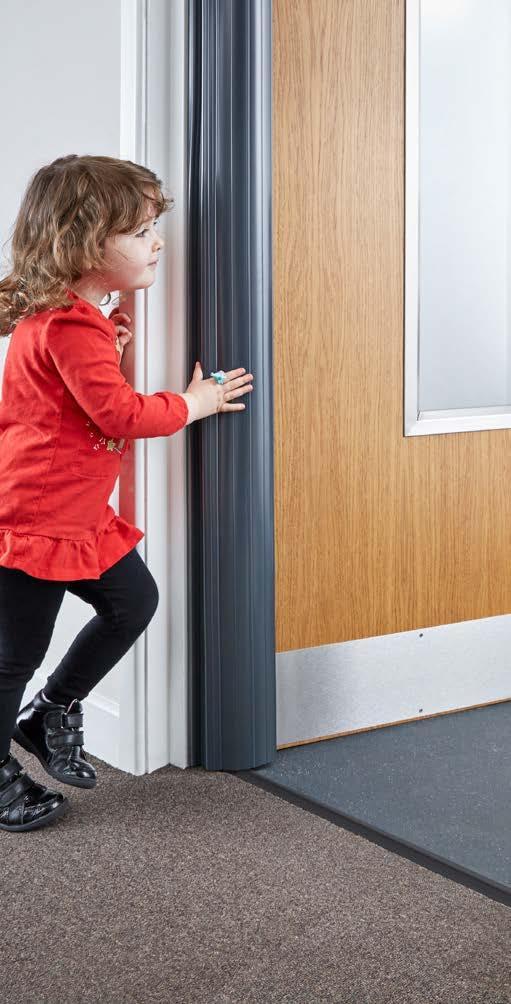
Nearly half (49%) of parents are concerned about their child’s safety and welfare on their journey to and from school, reveals new research.
As a result, school transport specialist Kura is giving away free transport safeguarding software to all schools, forever. The nationally representative survey of over 1,000 parents with children of school age, commissioned by Kura, found that 22% of schools do not have a school run safeguarding policy in place. Just 40% of parents are aware if their child’s school has a policy to deal with safeguarding incidents on the school journey and 38% didn’t know.

Danger caused by traffic and busy roads (71%) and the behaviour of other children on the school journey (68%) were the most cited safeguarding concerns. Additionally, parents expressed concern about the potential behaviour of members of the public (58%), the unreliable nature of public transport (44%) and children disembarking at the wrong stop on the homeward journey (34%).

High traffic levels around the school gates also pose a risk to

students, exposing them to damaging levels of pollution. According to UNICEF, one in three children in the UK are growing up in areas with toxic air, most of which is coming from vehicle emissions. Encouragingly, it seems that alternative transport methods are increasing in popularity. Only 15% of parents say their child travels to school via car or taxi, with 52% of parents saying that their child walks to school. Home to school transport services are now used by 16% of students. Only 37% of parents surveyed felt that their child’s school or transport operator already does enough to safeguard students on the journey to and from school. To ease concerns, parents would like to see more school staff or chaperones on board buses to monitor behaviour (28%), better CCTV on school transport (24%) and more school staff at public transport hubs (21%) - a potentially expensive solution for schools to arrange. Further to this, a fifth (20%) of
parents believe that schools need to introduce passenger tracking software to confirm when their child has boarded and disembarked from the bus on the school run to give parents peace of mind. As a result of these findings, Kura has announced the launch of its free software offering at the annual ISBA conference. This will enable school staff and drivers to see which students are on board and on which route, track school vehicles, manage capacity and access the driver
app. Students will also be able to tap on and off the vehicle to enable confirmation of where they boarded and disembarked the service. Along with the free software, Kura has developed a set of transport safeguarding guidelines that all schools can easily follow and implement to instantly improve the safety of its pupils on the school run. Schools can sign up for Kura’s new free transport safeguarding software at www. ridekura.com/for-schools
45 www.qaeducation.co.uk | |FINGER PROTECTION | ZEROplus ELLEN FINPROTECT PLUS + FINGER PROTECTION STRIPS ZERO SEAL SYSTEMS LTD: 01785 282910 FIND OUT MORE ABOUT US AT: ZEROPLUS.CO.UK REST ASSURED, IT’S TESTED. Our entire Finprotect Plus range is now fully certified to BS EN 1634.1 MADE FOR SCHOOLS, HOSPITALS AND OTHER PUBLIC BUILDINGS Following successful independent testing by a UKAS accredited laboratory, the complete Finprotect Plus range has been assessed to BS EN 1634-1:2014 It can be installed on previously tested steel based doorsets for a duration up to 240 minutes, and timber based doorsets for a duration up to 120 minutes Furthermore, they can be installed in both applications regardless of the exposure direction.
image courtesy of Kura
Air and water compliance in education
Disease.
Educational buildings sometimes need to adapt to fluctuating school populations, which can mean adapting or repurposing existing buildings, or adding new ones. This almost invariably means altering the water system, so it is essential to ensure that your Legionella risk assessment is kept up to date.
cleaned in accordance with TR19® Grease, to remove all traces of grease.
Fresh, clean air has been shown to contribute to a good learning environment. TR19®, lays down the intervals at which ventilation systems should be cleaned in order to help maintain good indoor air quality.
One of best-known of these is the water system, which must be kept clean and free from water borne pollutants such as
Legionella bacteria. This is essential for anyone with an underlying health condition, making them particularly vulnerable to Legionnaire’s
One-stop for all your schools air and water hygiene needs
If you’re juggling your kitchen extract and ventilation cleaning along with fire damper testing, Legionella management and IAQ testing, talk to us about our packaged services, which save you time and money.

Another key compliance area for many schools and colleges is the kitchen extract system, where grease deposits collect during cooking to form a serious potential fire hazard. The extract system, including the ductwork, canopy, plenum and fan, must be regularly

As there are quite a few areas in which air and water compliance are mandatory, it is a good idea to appoint a specialist service provider, especially one that can provide compliance through a package of services.
www.swiftclean.co.uk
46 |www.qaeducation.co.uk
| AIR & WATER HYGIENE |
1982 - 2022
In every school or college there is a duty of care to provide a safe environment. This means ensuring your compliance in several key areas aimed at ensuring safe and healthy learning environments.
Image courtesy of Swiftclean
QA EDUCATION BOOKSHELF

We take a look at some of the latest children’s titles as well as CPD books. See our website to be in with a chance of winning books throughout the year…
The School Premises
Handbook: a guide for premises staff, business managers, headteachers and governors
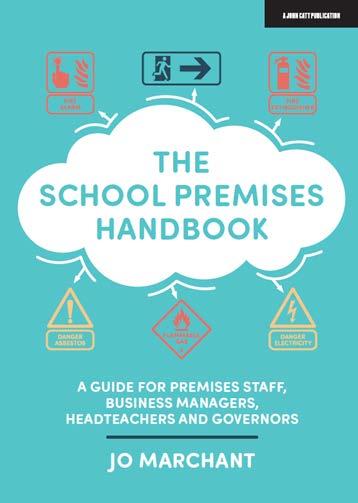 By Jo Marchant
John Catt Educational - £16
By Jo Marchant
John Catt Educational - £16
The A-Z of Great Classrooms
By Roy Blatchford John Catt Educational - £15
The A-Z of Great Classrooms is an alphabetical celebration of teaching and learning. Over the past twenty years as a reviewer and inspector of schools and colleges in the UK and across the world, Roy Blatchford CBE has visited over 15,000 lessons in more than 1,000 settings. In the book, Roy seeks to distil what happens in classrooms and other settings where learners from aged 3-19, are engaged and excited by skilled and knowledgeable teachers. It includes examples from schools, and student voices, analysis, personal reflections and commentary.
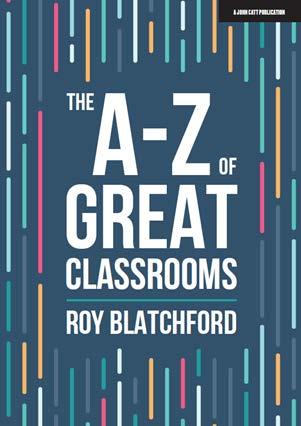
With the increasing focus on safe and compliant school buildings, this book could not come at a more opportune time. The handbook is the first comprehensive reference for all stakeholders concerned with the maintenance and upkeep of school premises in England, providing premises staff, business managers, headteachers and governors with a complete guide to their legal responsibilities surrounding buildings compliance. Jo Marchant, a highly experienced head of estates, helps steer the reader through key legislation, further information sources, and the preparation of an action checklist. Readers can find the relevant information at a glance. Each section begins with an explanation and the relevant legislation, followed by a guide to compliance and useful references to further information on the topic.
This A-Z includes everything from ‘Arrival’ routines and ‘Behaviour’ to the difficulties of ‘Differentiation’ and the big question, ‘Why’ teach? It ends with ‘Zoon phonanta’ (talking animal Ancient Greek for human) the importance of teaching language to ensure all young people have the dignity and positive self-esteem to be able to speak, read and write with fluency - the
skills to fulfil their true potential. ‘Asides’ provide excellent examples of questions, guides and approaches shared from different schools and settings to provide further food for thought.
Play in a Covid Frame: Everyday Pandemic Creativity in a Time of Isolation
 By Anna Beresin and Julia Bishop Open Book Publishers - £30.95 paperback, £41.95 hardback
By Anna Beresin and Julia Bishop Open Book Publishers - £30.95 paperback, £41.95 hardback
During the international coronavirus lockdowns of 2020–2021, millions of children, youth, and adults found their usual play areas out of bounds and their friends out of reach. How did the pandemic restrict everyday play and how did the pandemic offer new spaces and new content? This unique collection of essays
documents the ways in which communities around the world harnessed play within the limiting frame of Covid-19. Folklorists Anna Beresin and Julia Bishop adopt a multidisciplinary approach to this phenomenon, bringing together the insights of a geographically and demographically diverse range of scholars, practitioners, and community activists. The book begins with a focus on social and physical landscapes before moving onto more intimate portraits of play among the old and young, including coronavirusthemed games and novel toy inventions. Finally, the co-authors explore the creative shifts observed in frames of play, ranging from Zoom screens to street walls.



Visit www.qaeducation.co.uk Or contact us 01257 267677 qaeducation@hotmail.co.uk Keeping you on top of new developments in the education sector follow us @qaeducation







































































































































































 l Written by Jackie Day l Phonics Consultant Dr Marlynne Grant
l Written by Jackie Day l Phonics Consultant Dr Marlynne Grant









































































 By Jo Marchant
John Catt Educational - £16
By Jo Marchant
John Catt Educational - £16

 By Anna Beresin and Julia Bishop Open Book Publishers - £30.95 paperback, £41.95 hardback
By Anna Beresin and Julia Bishop Open Book Publishers - £30.95 paperback, £41.95 hardback


